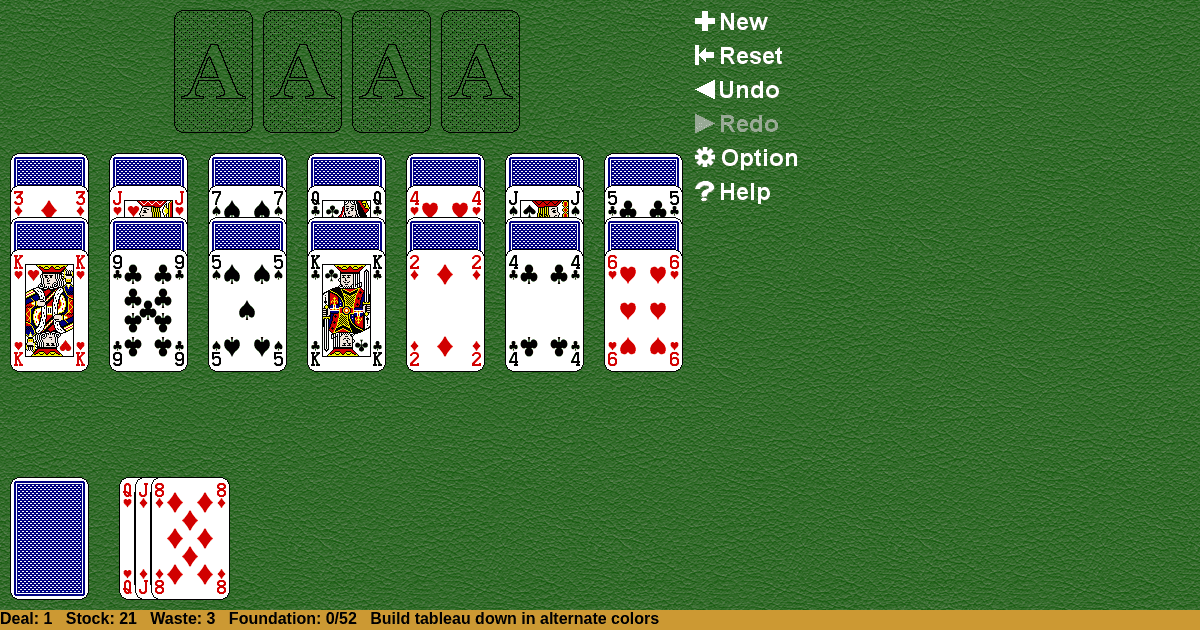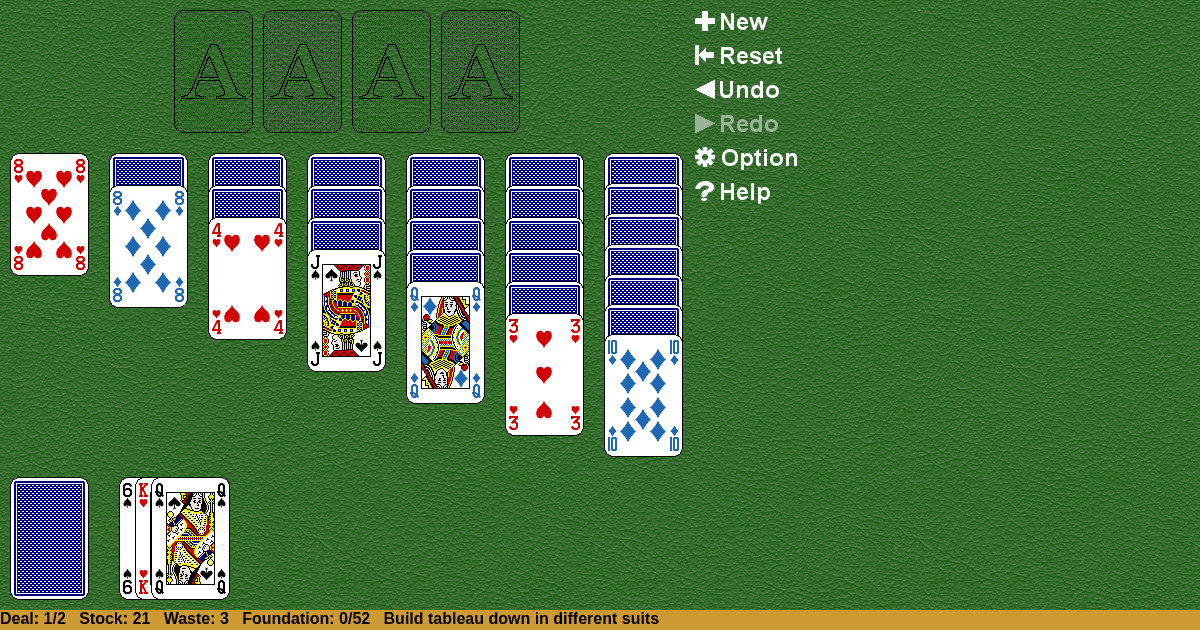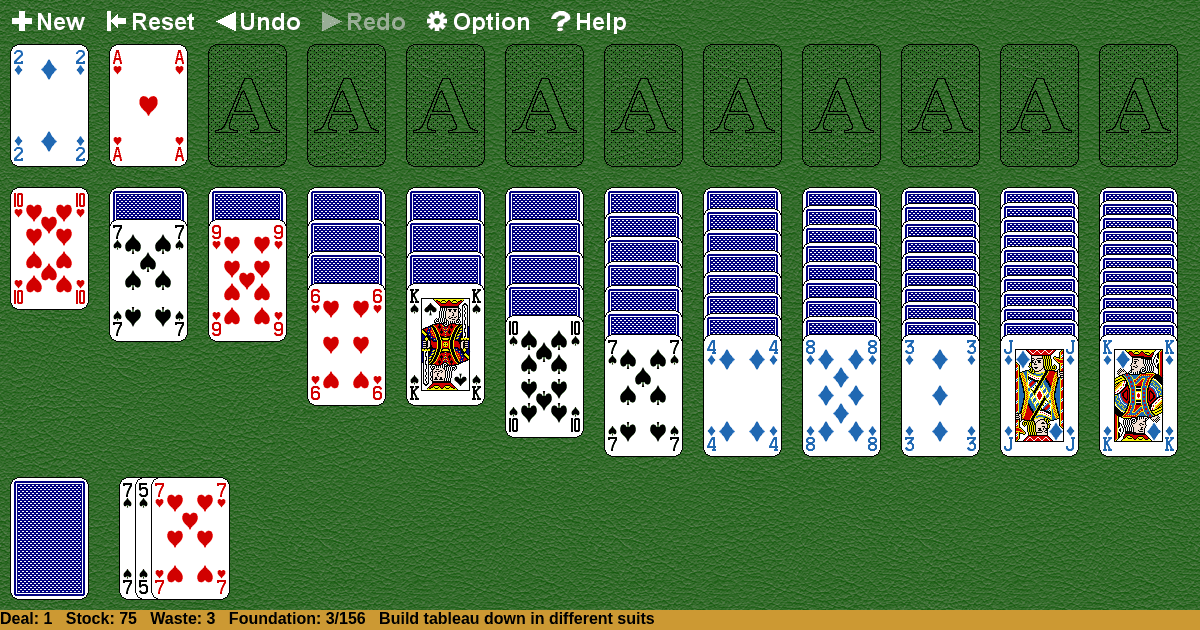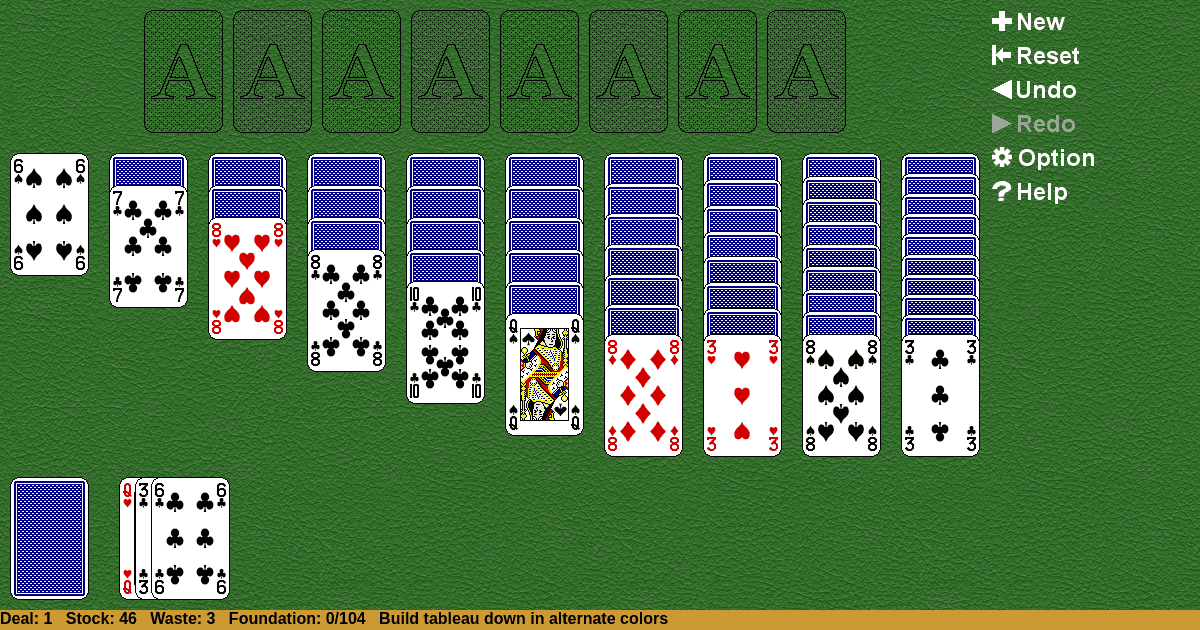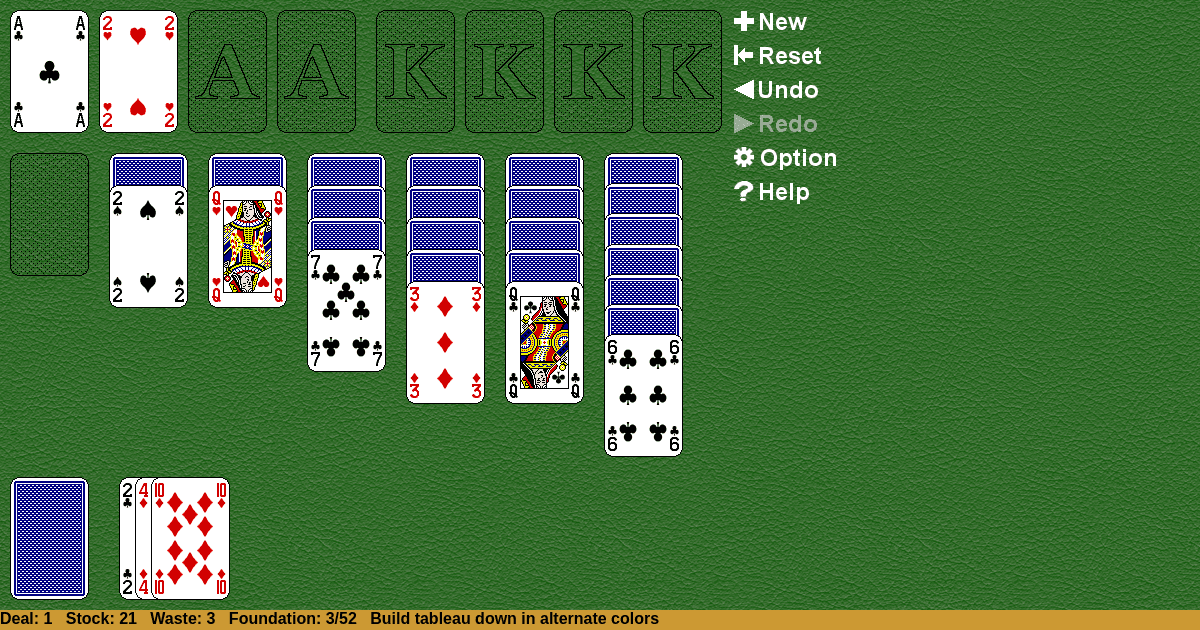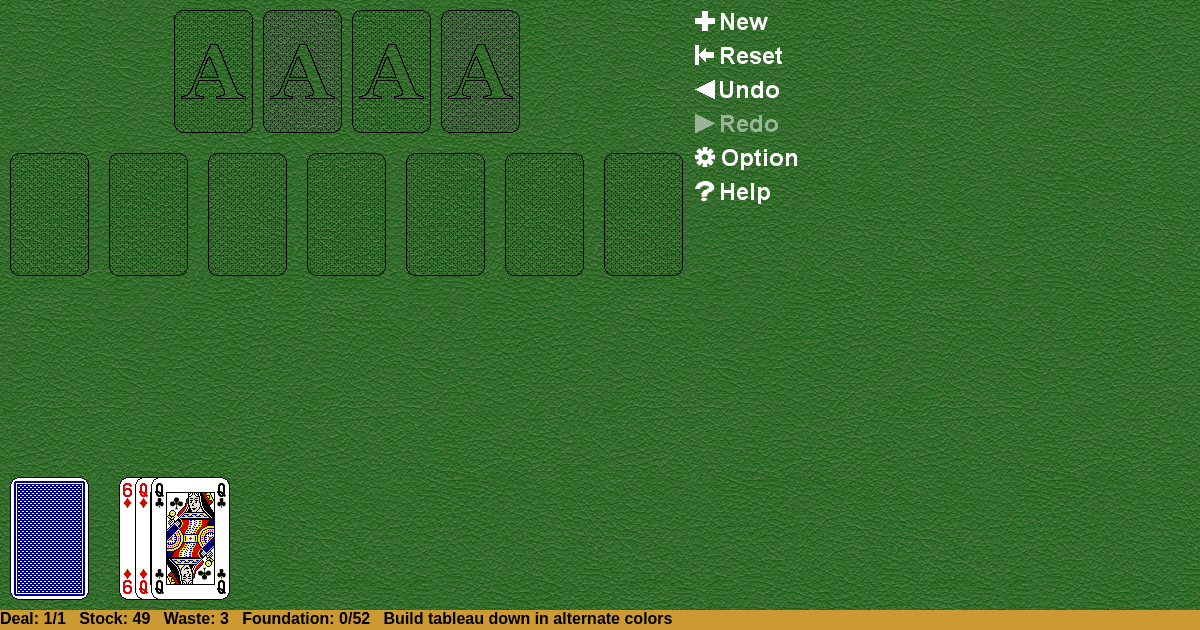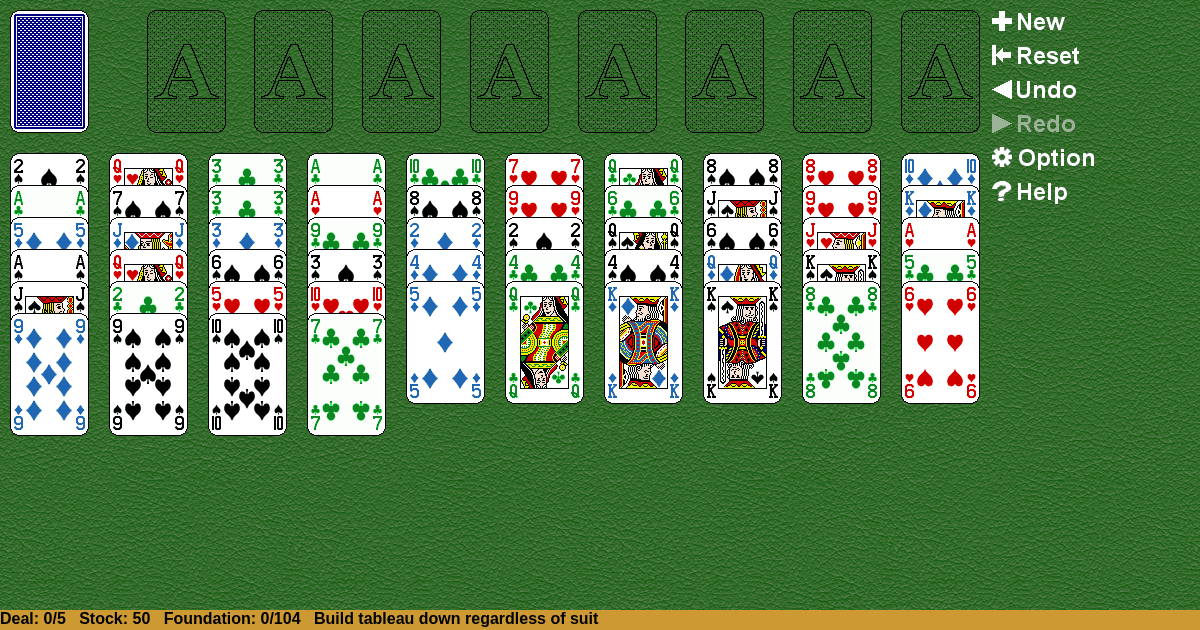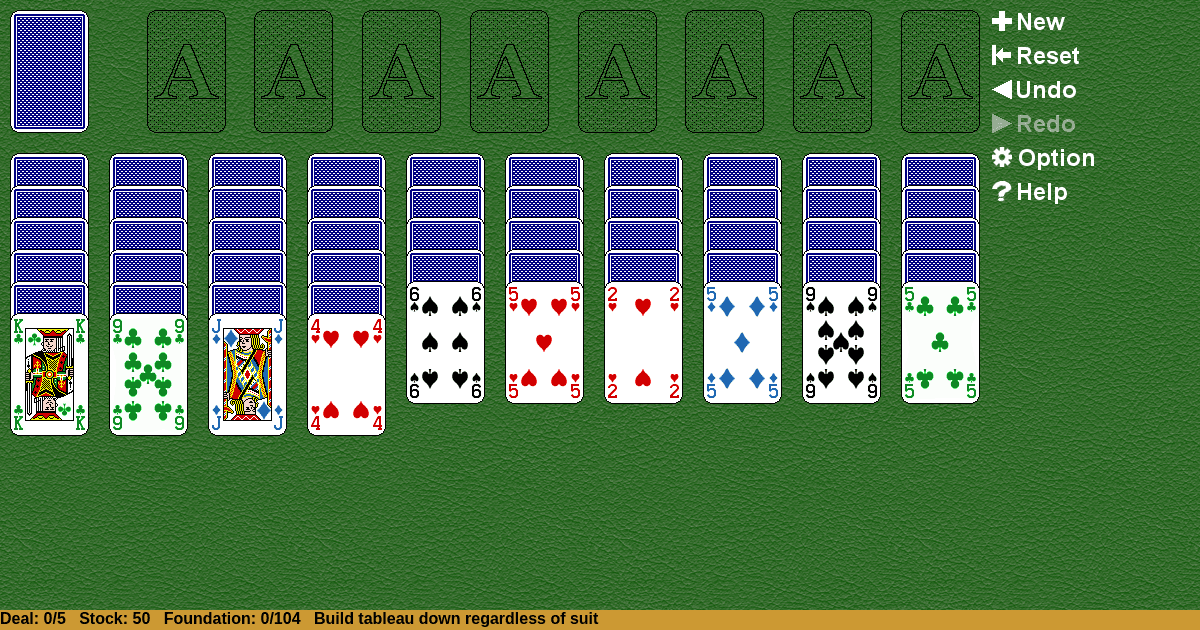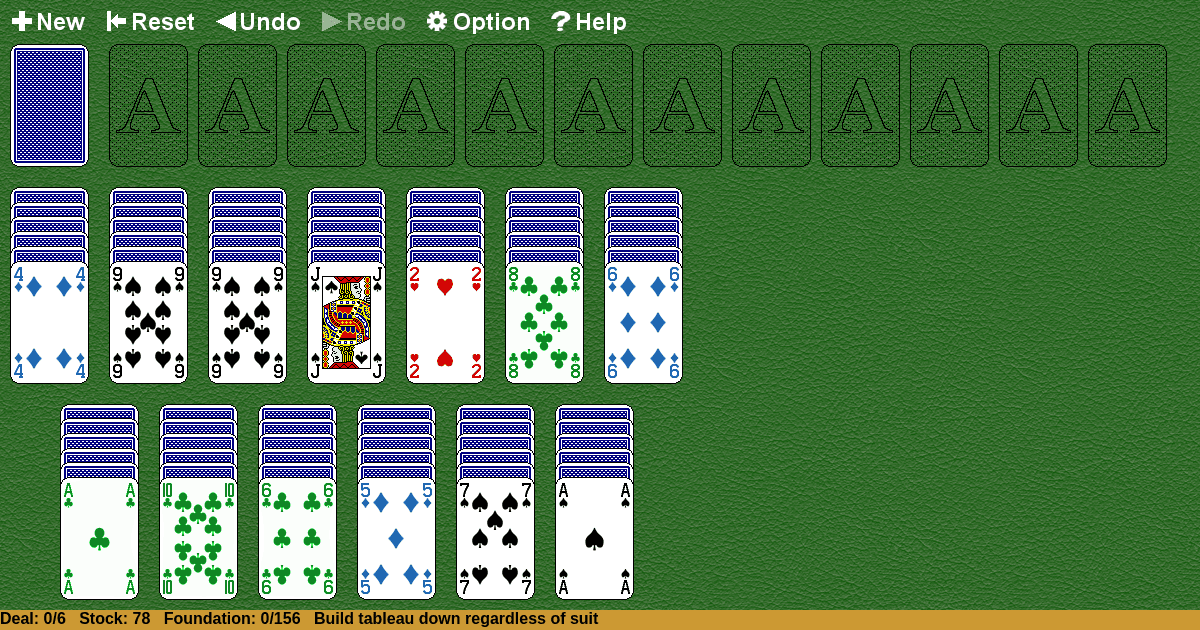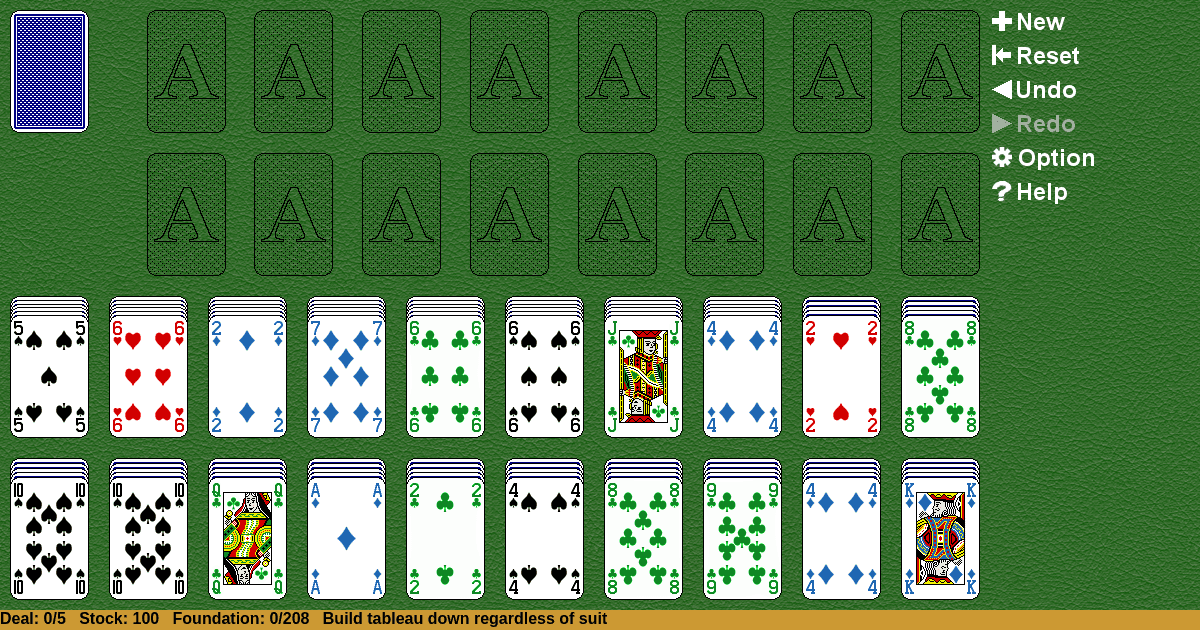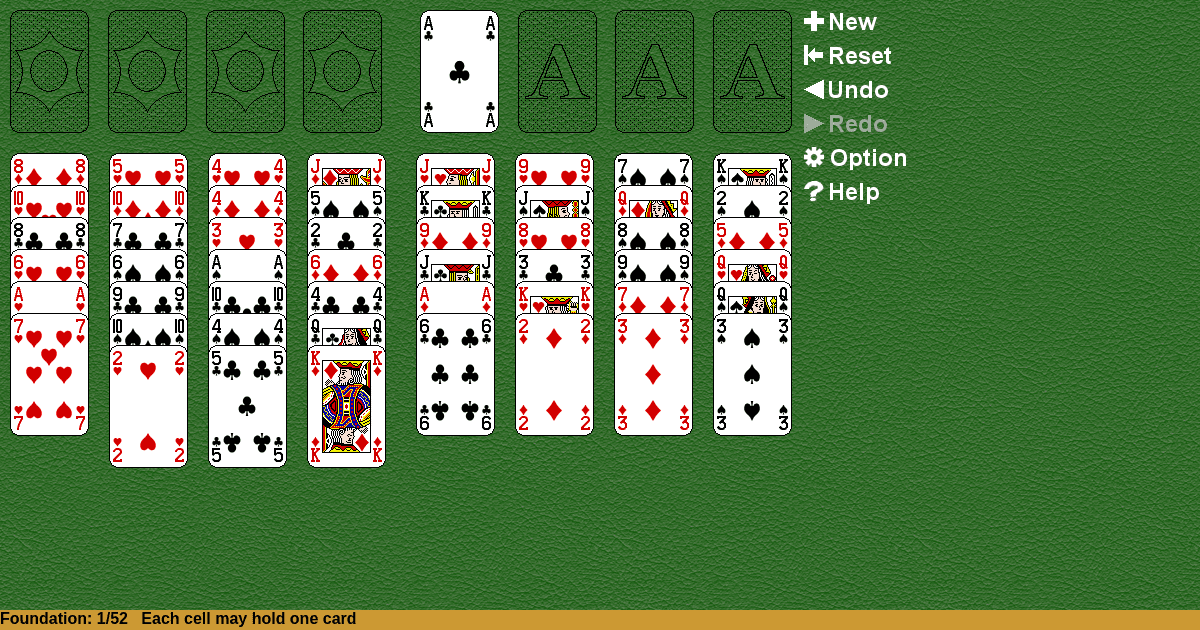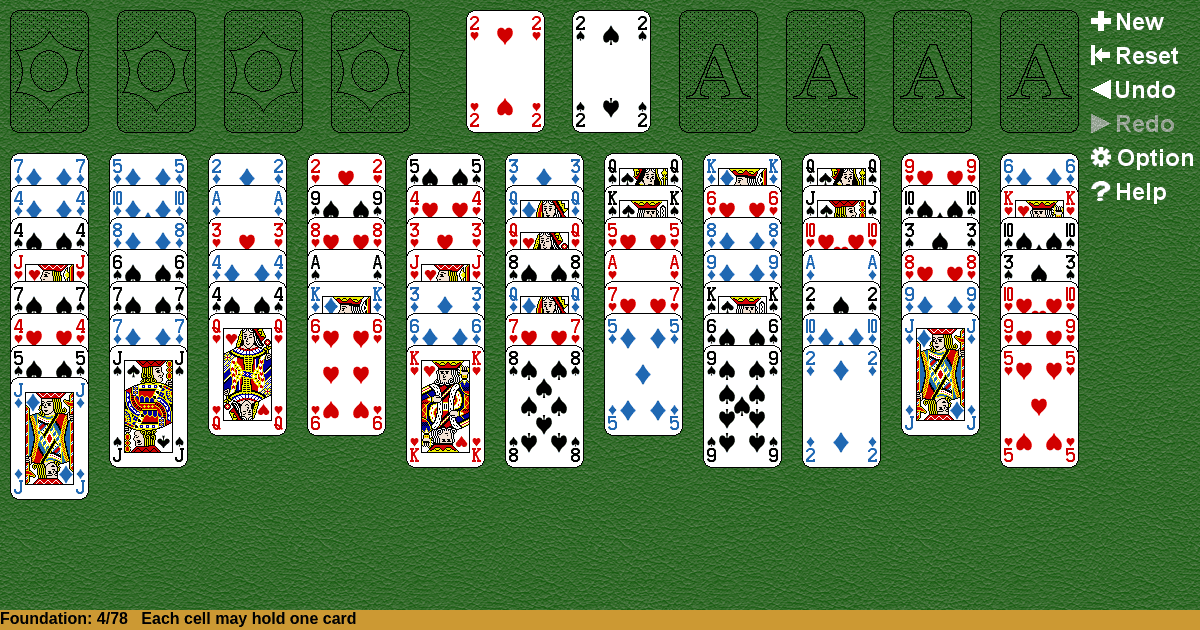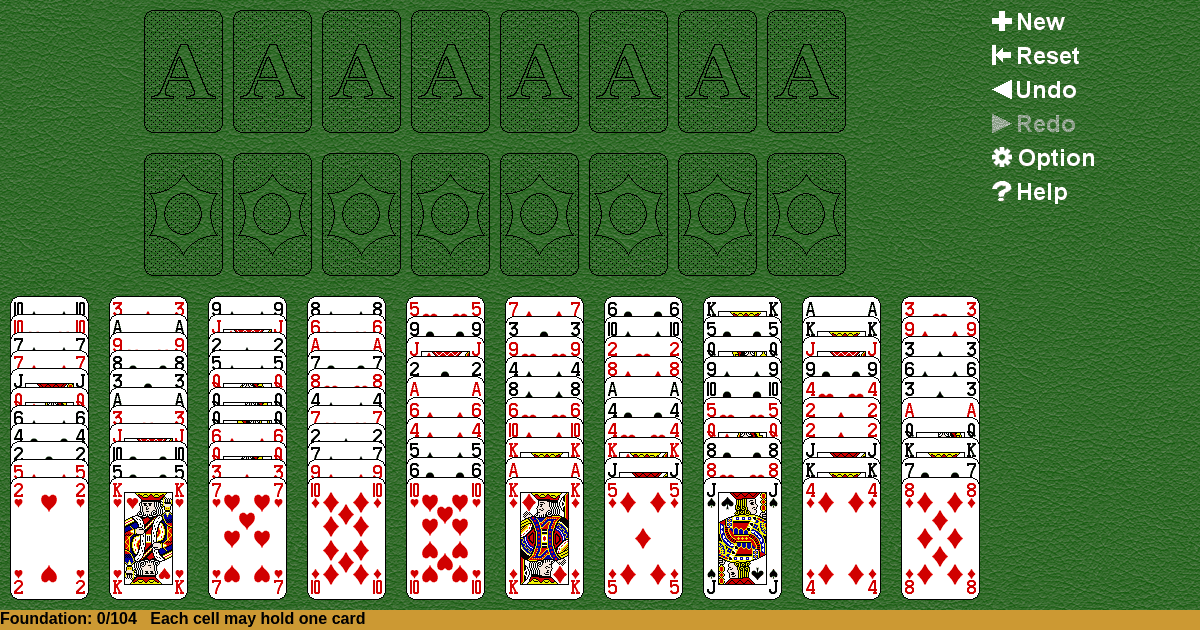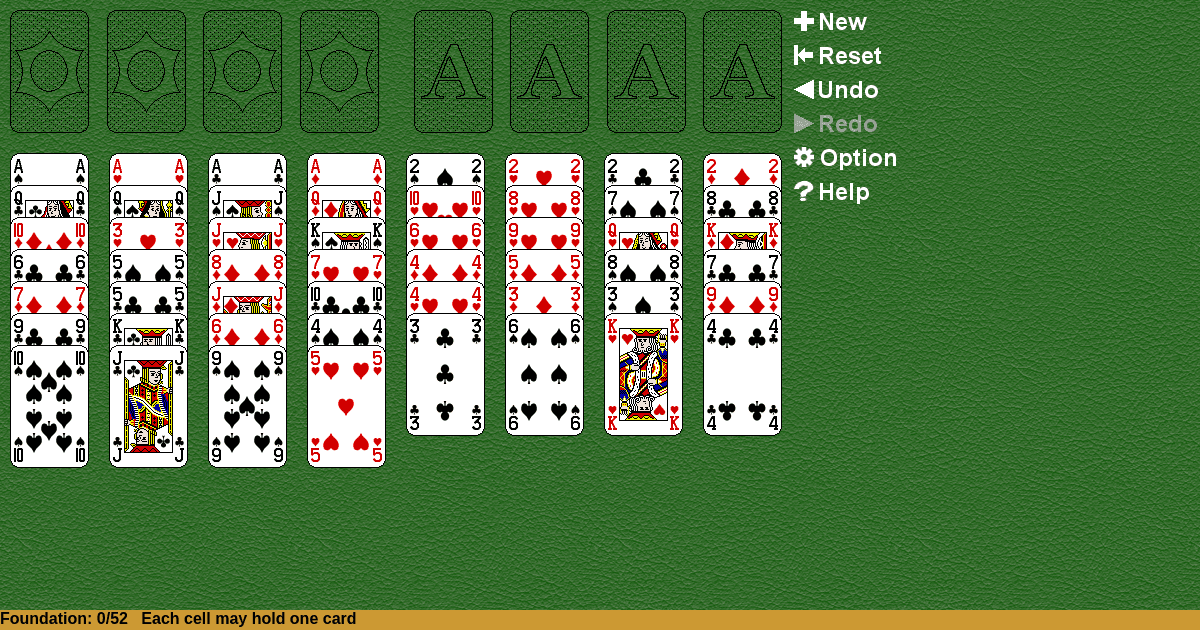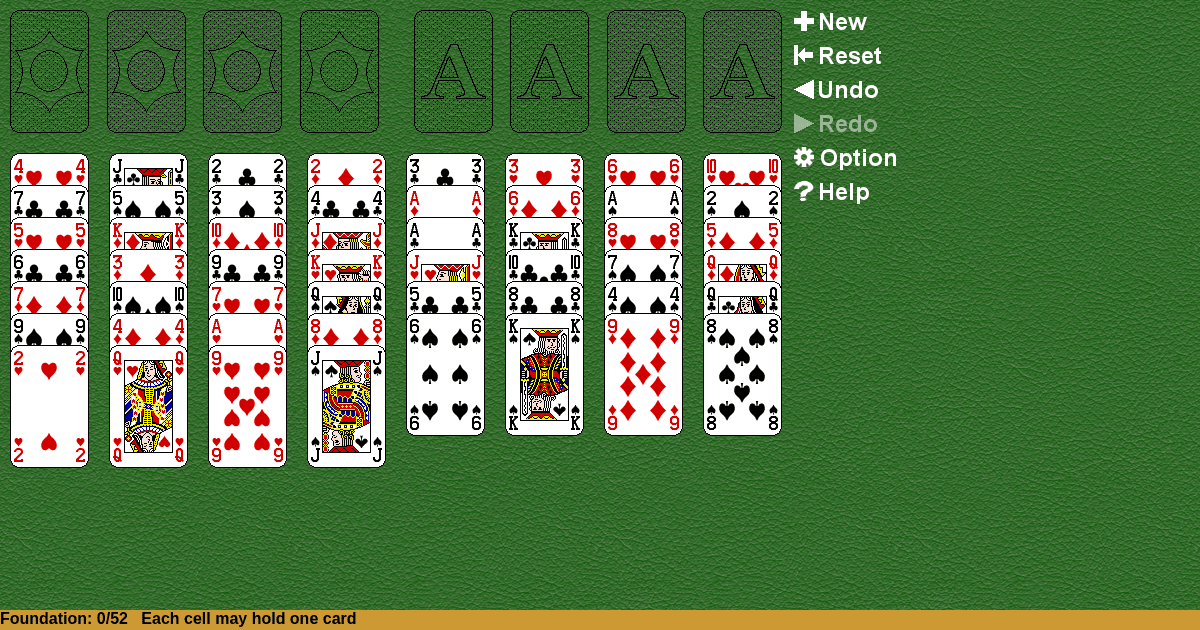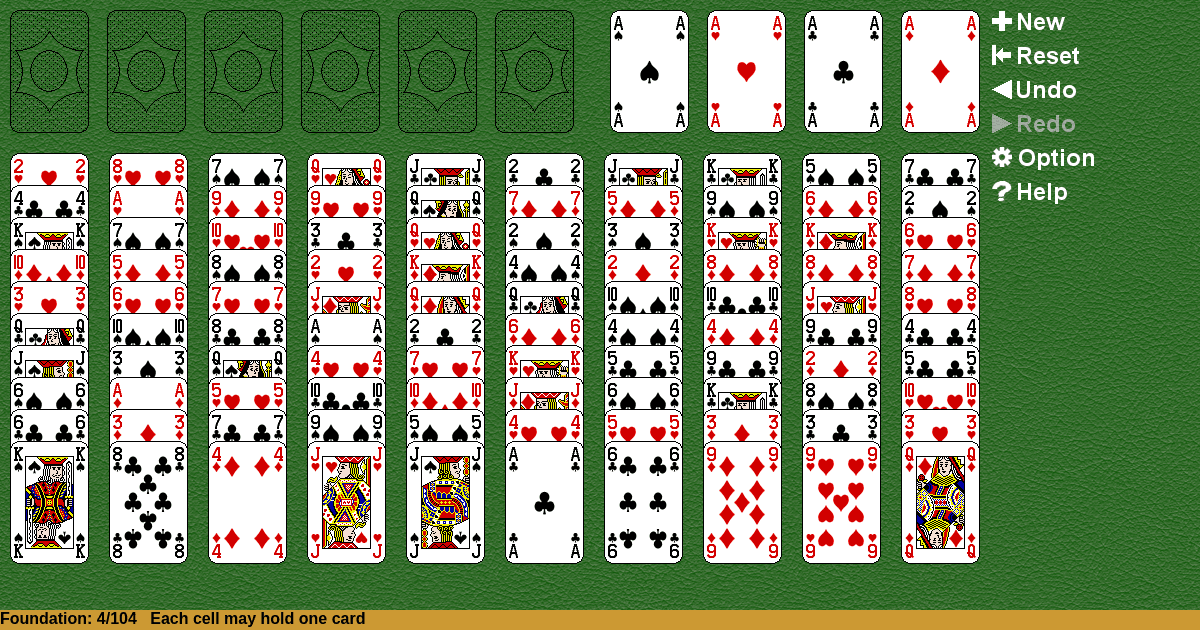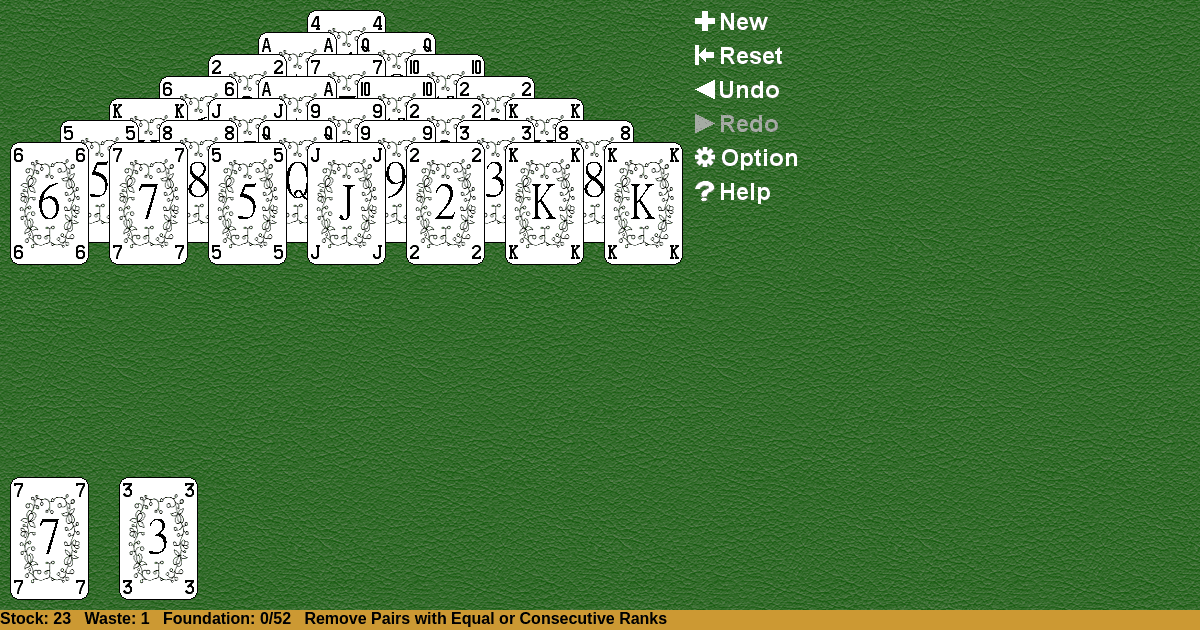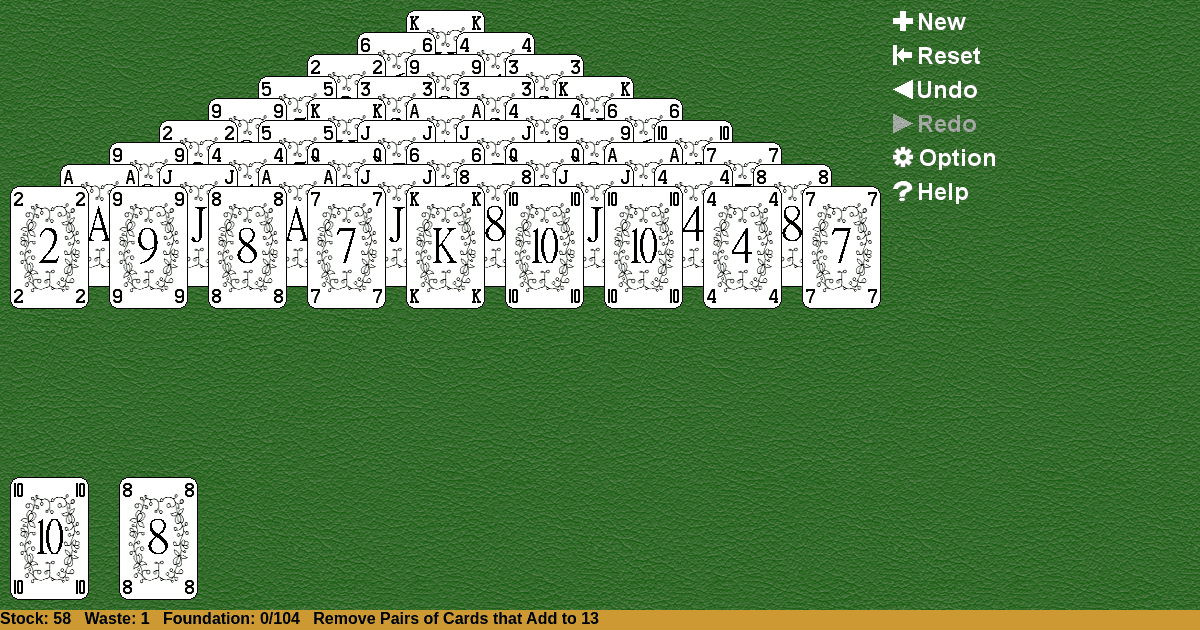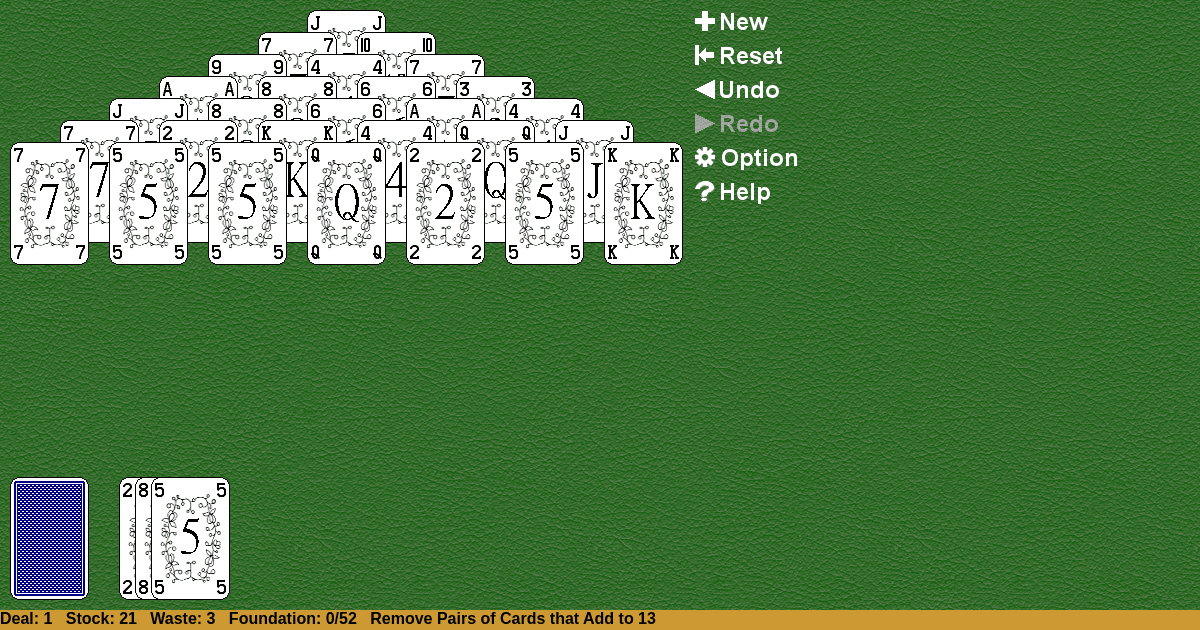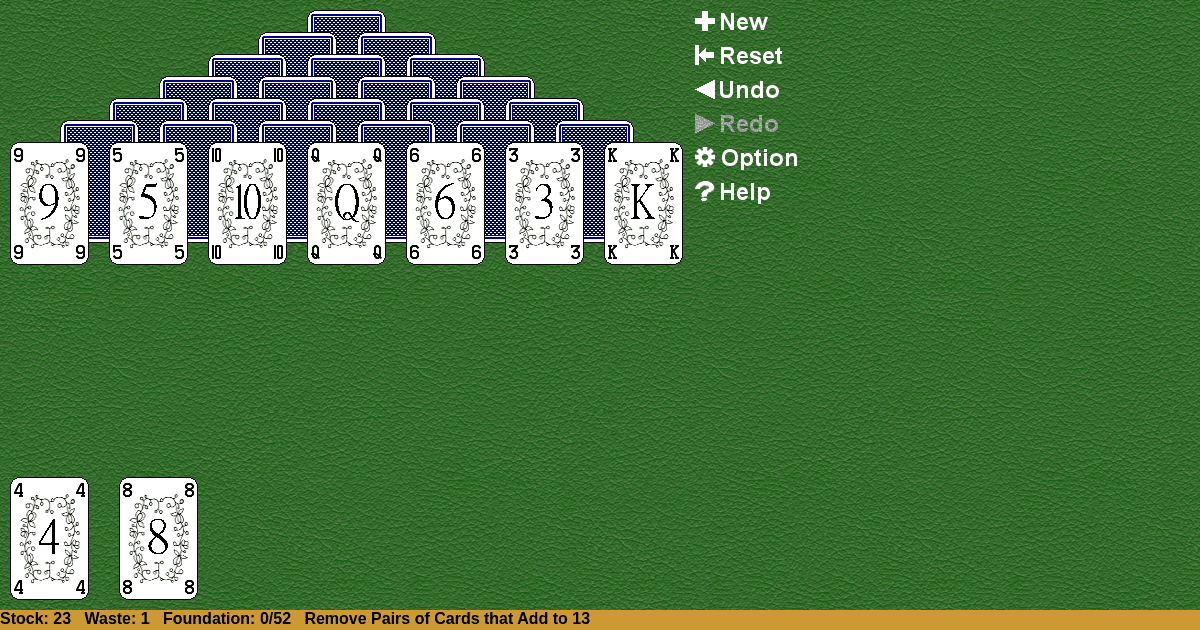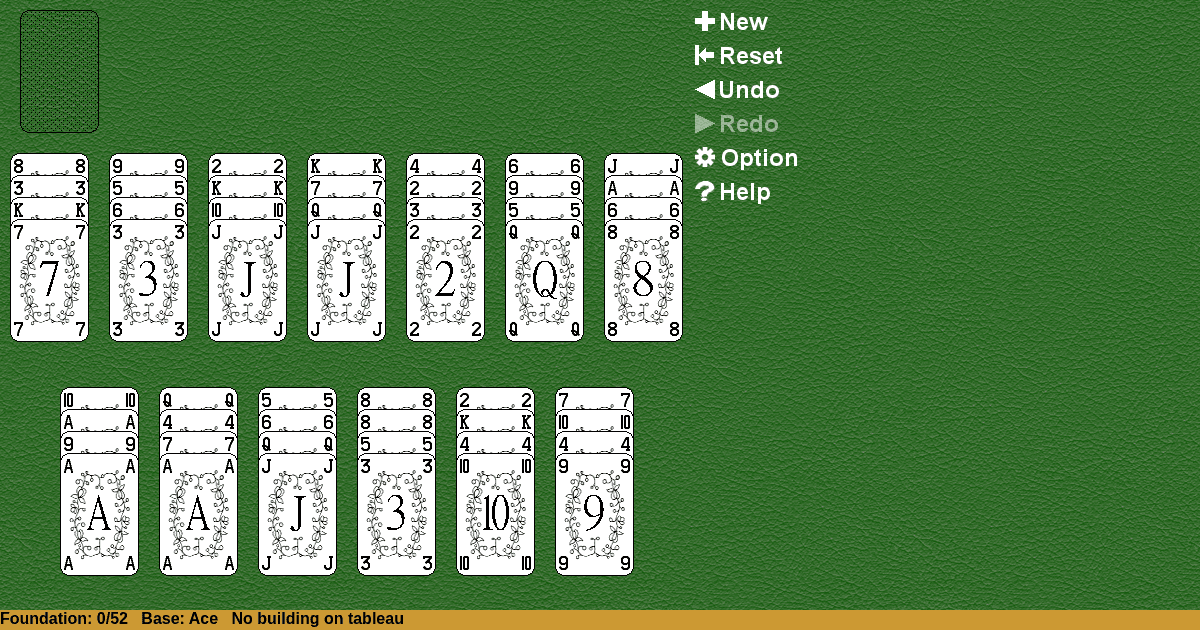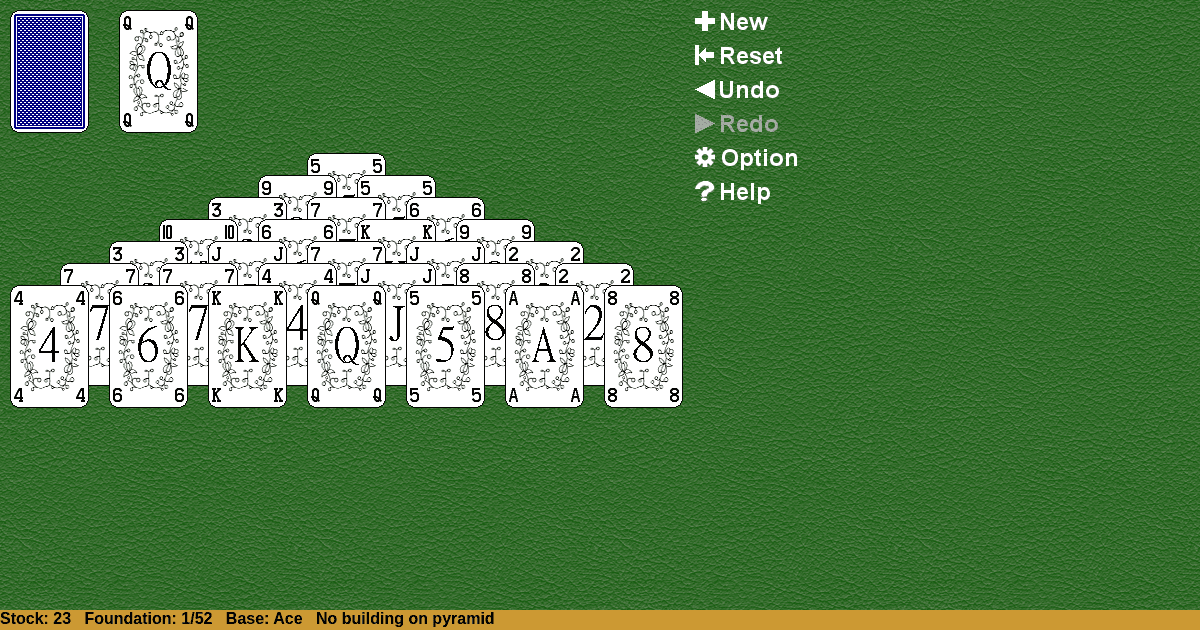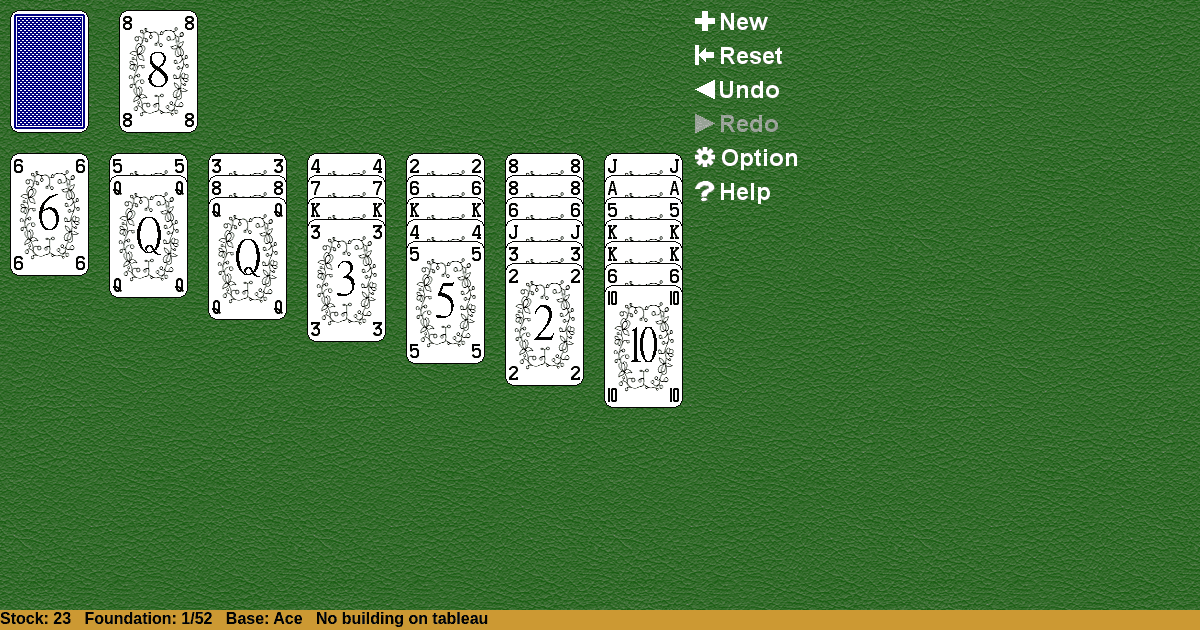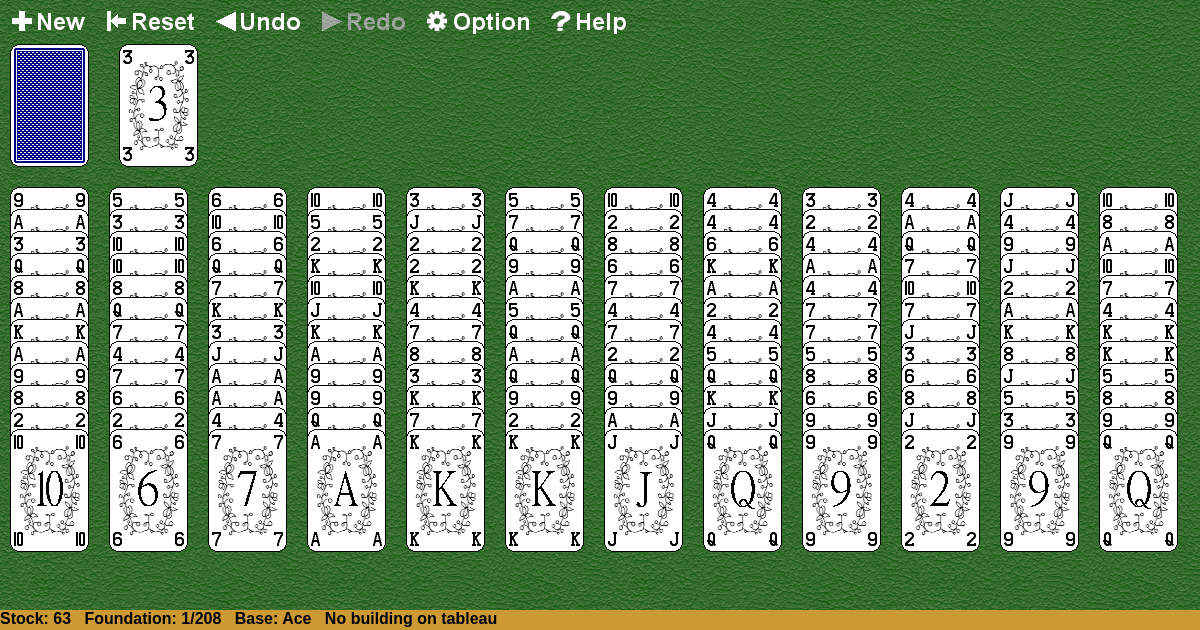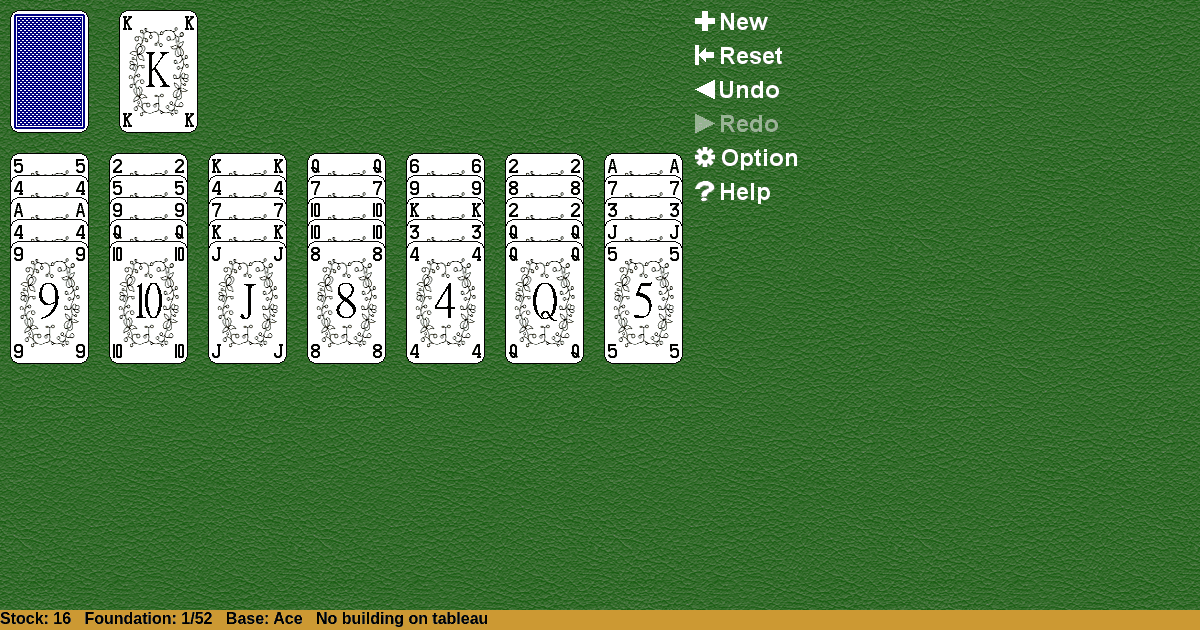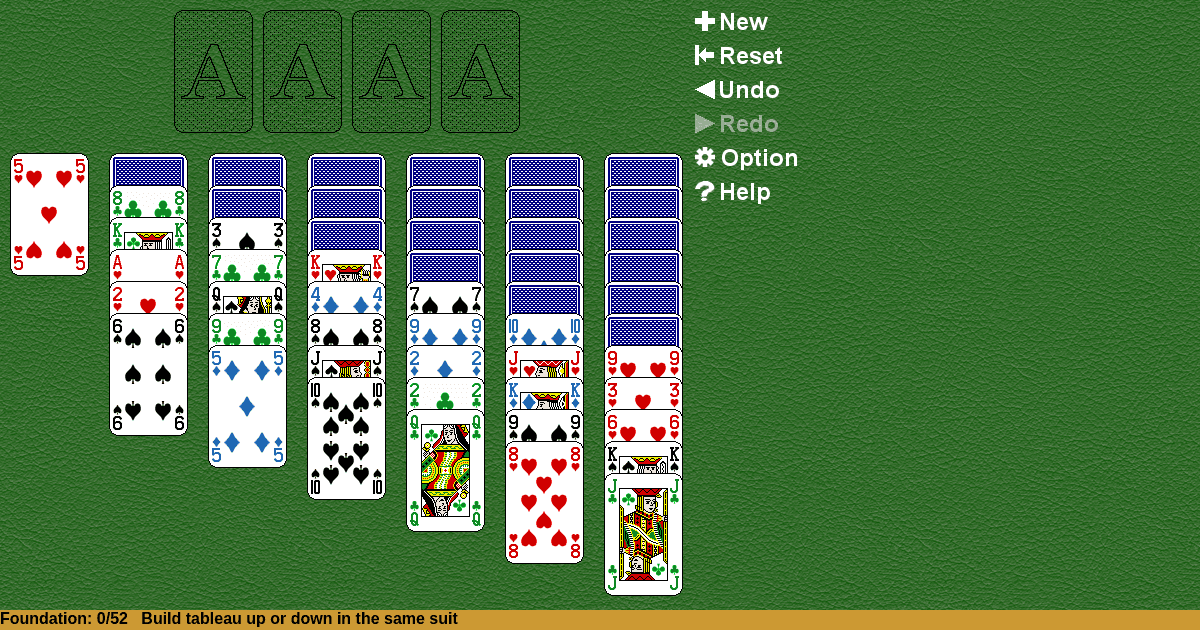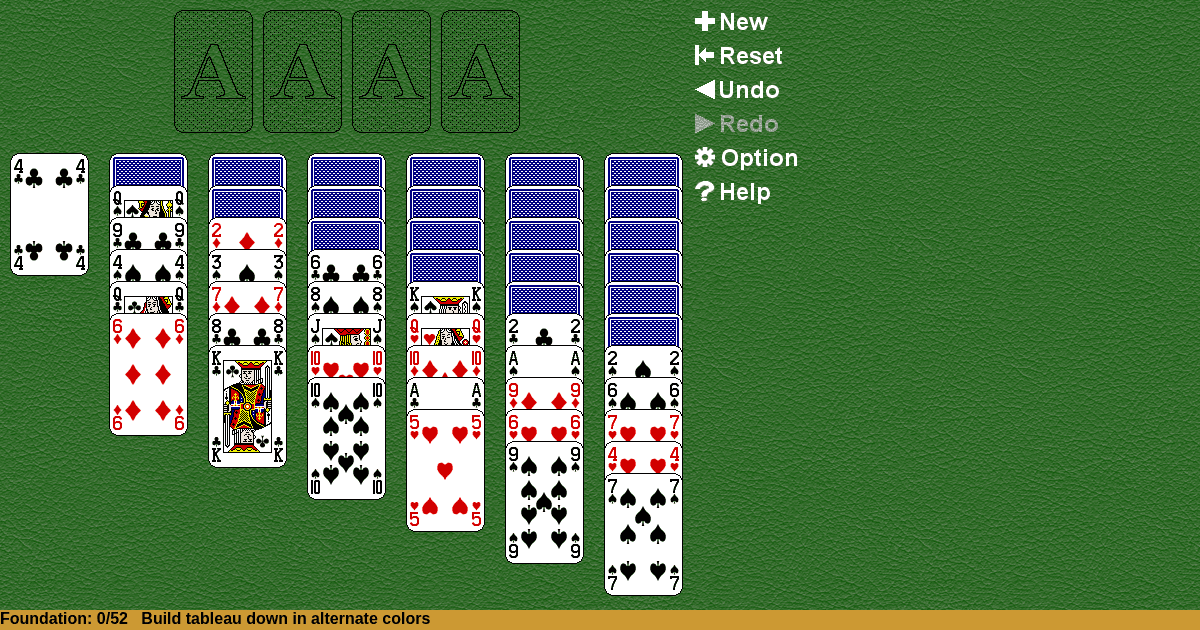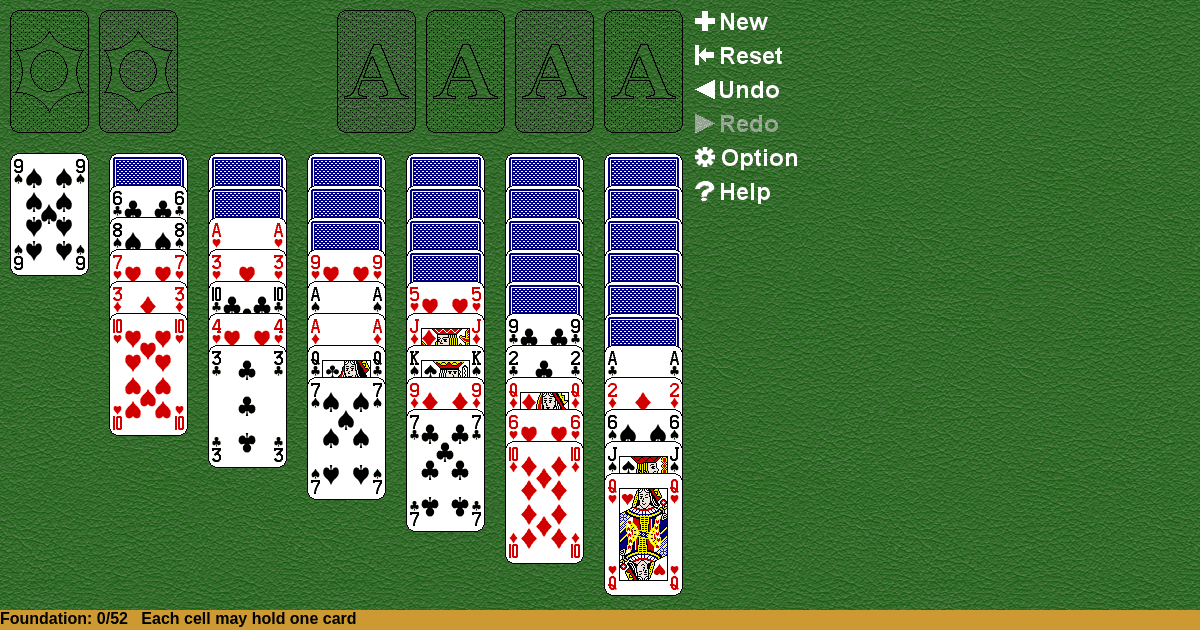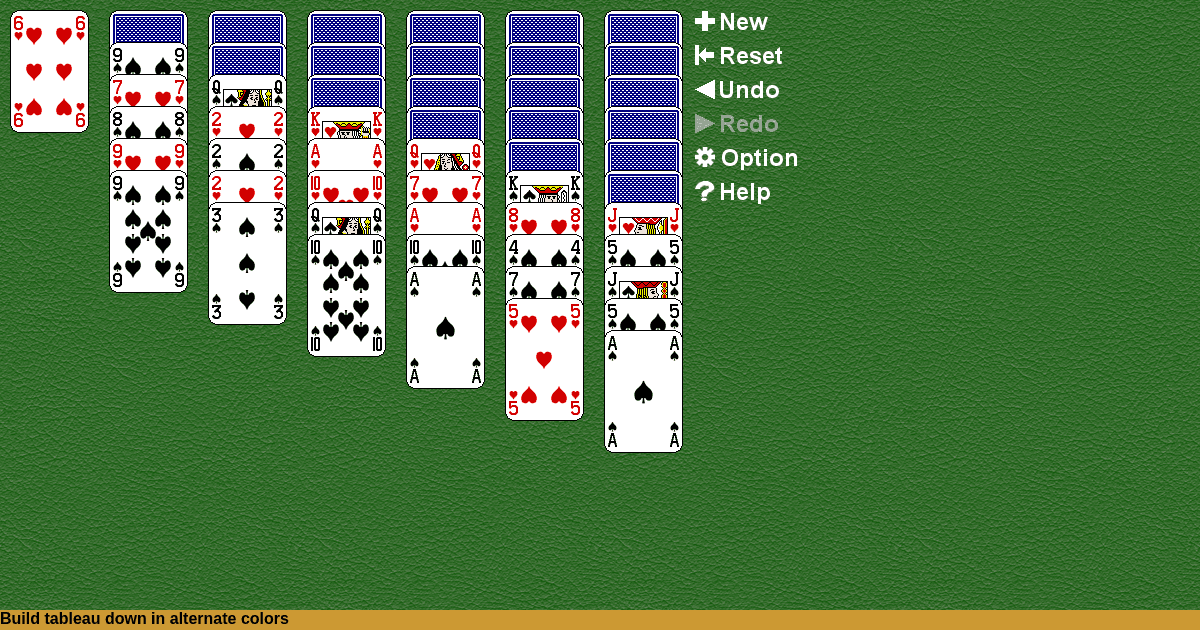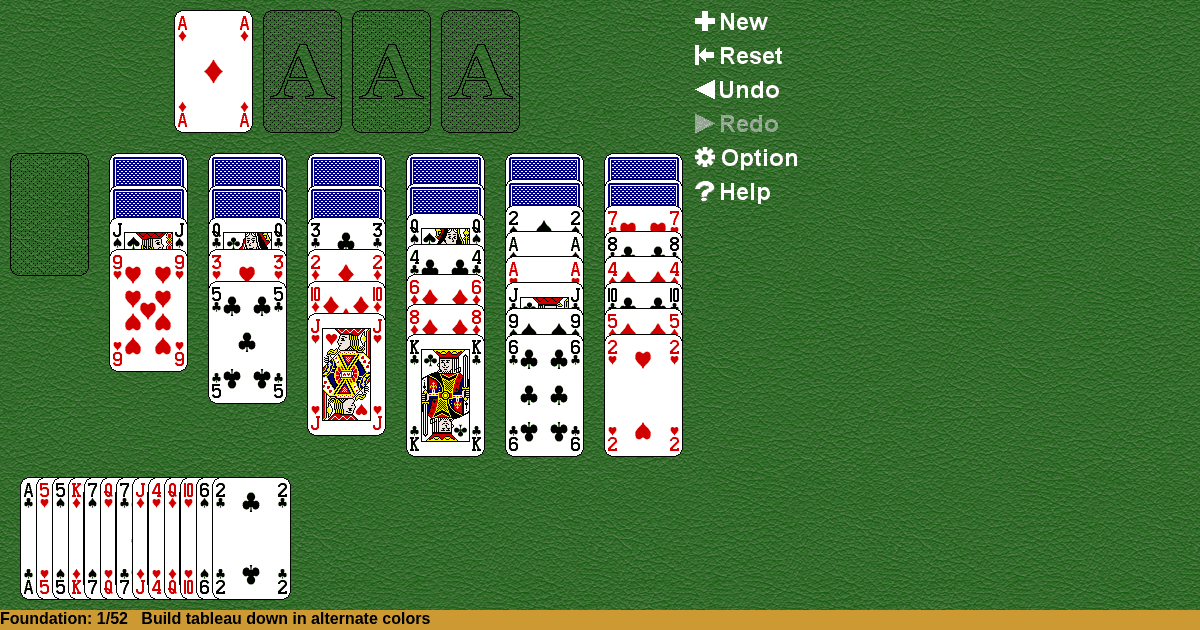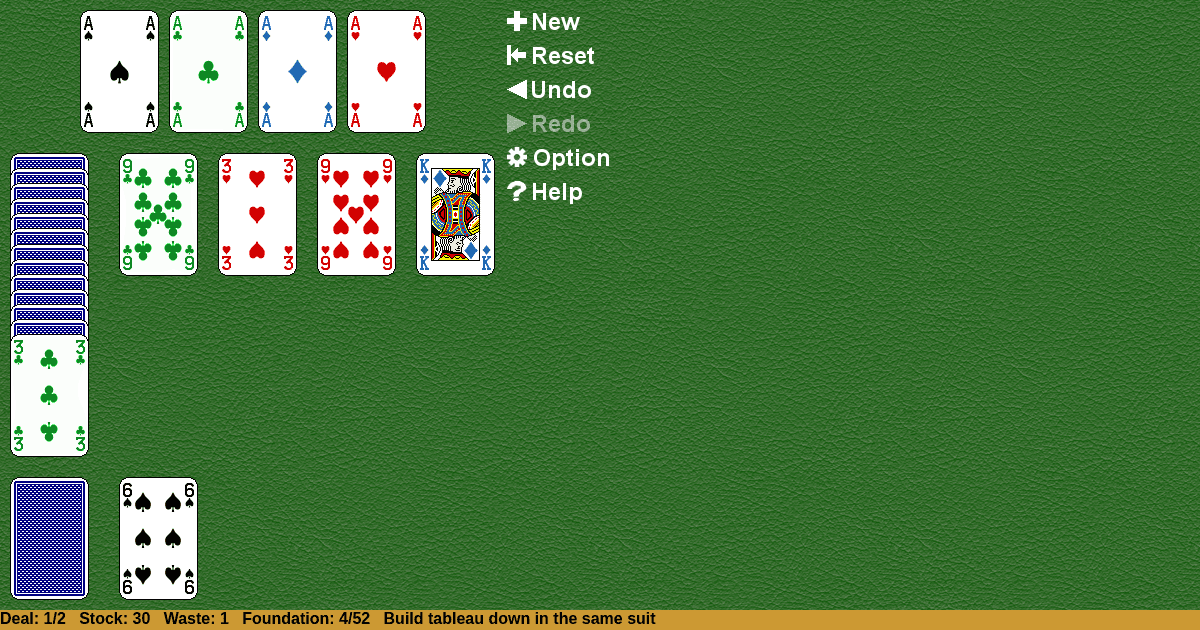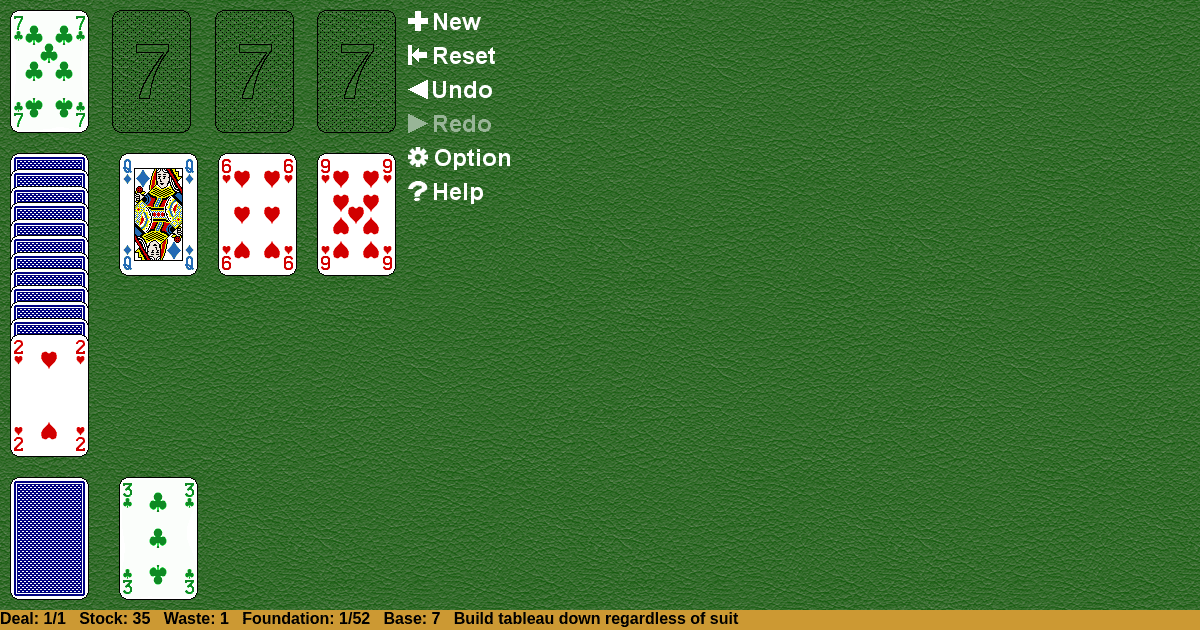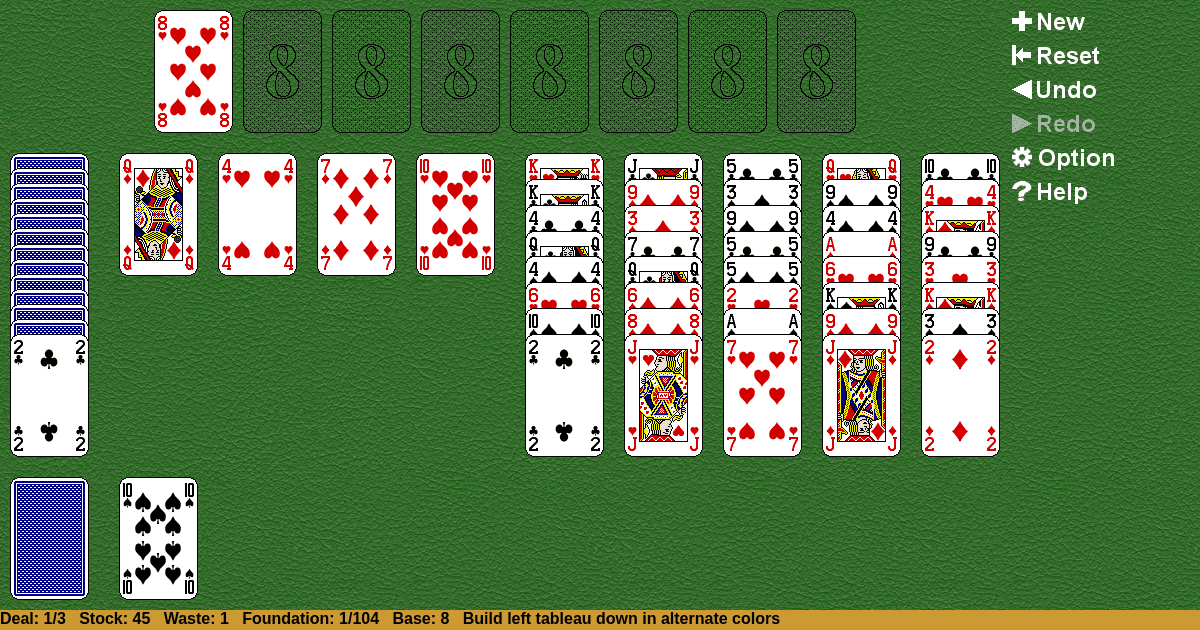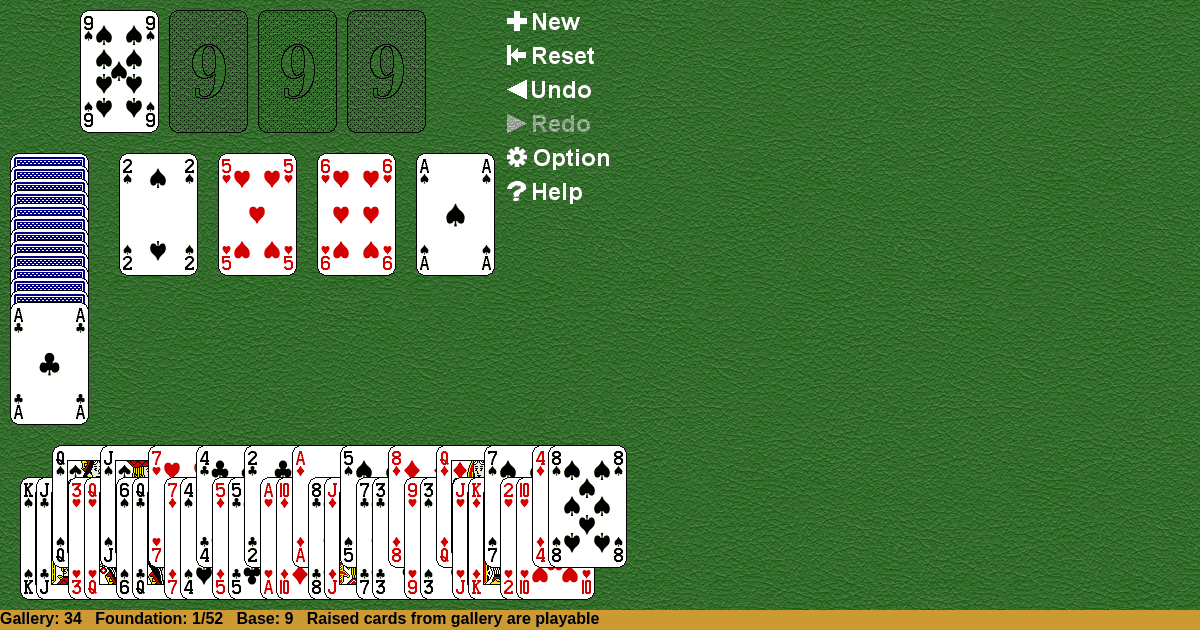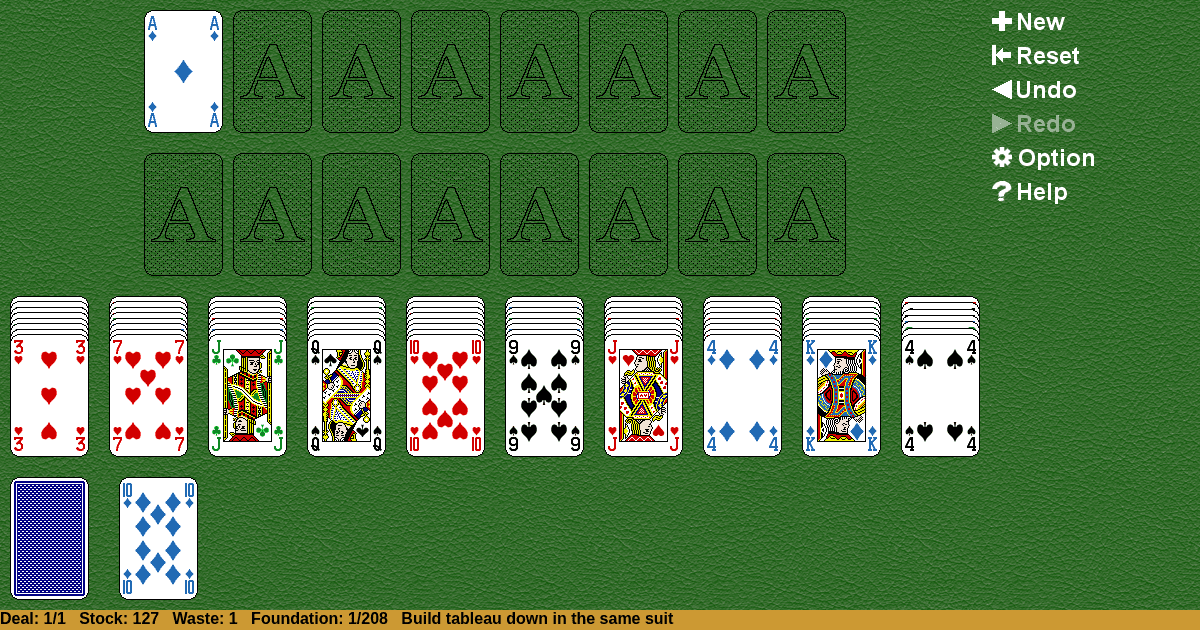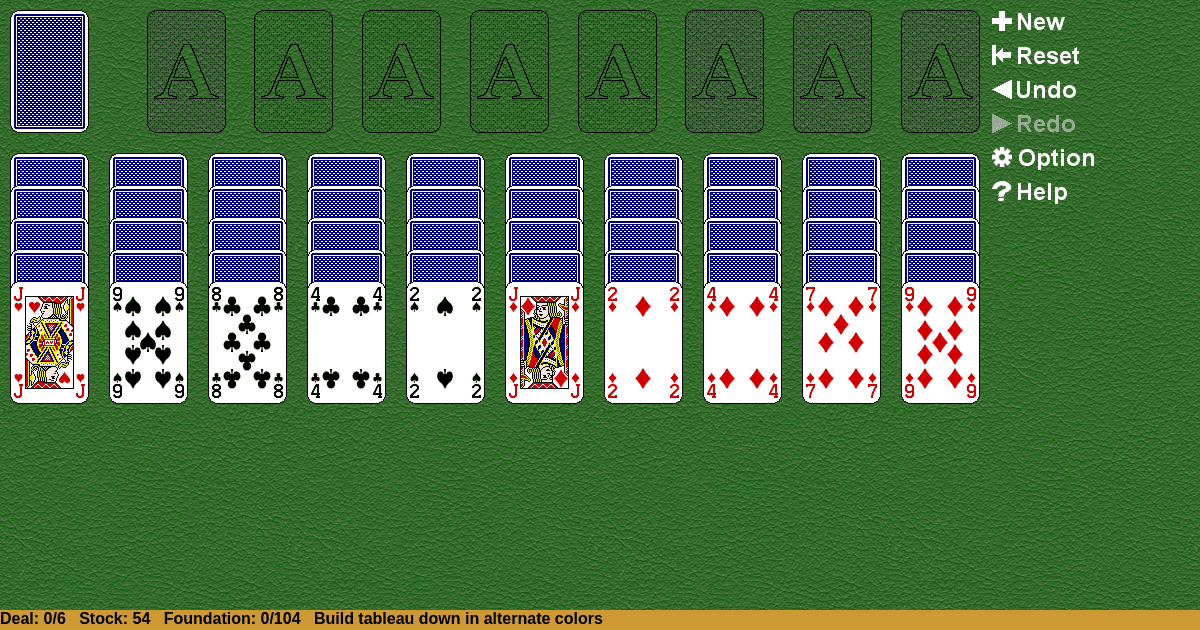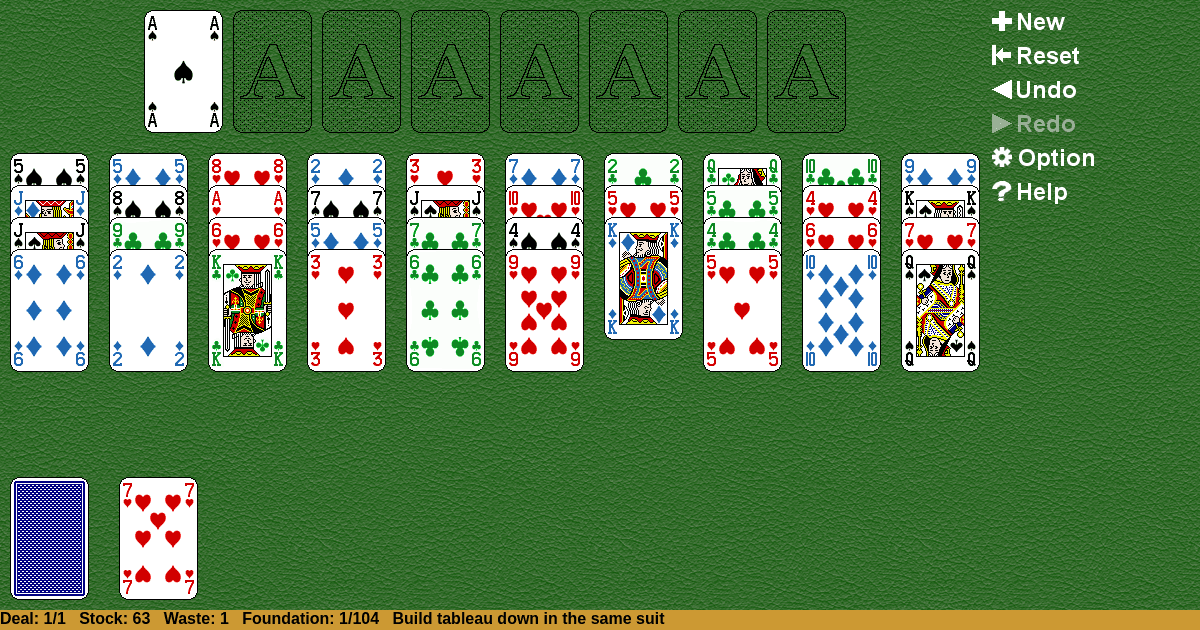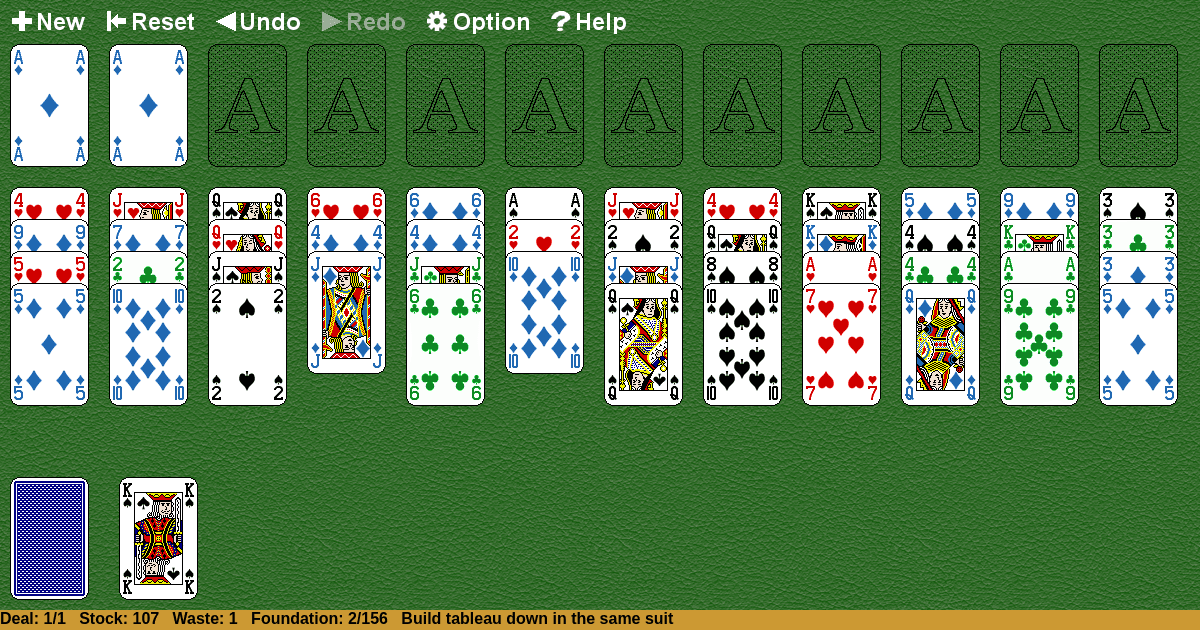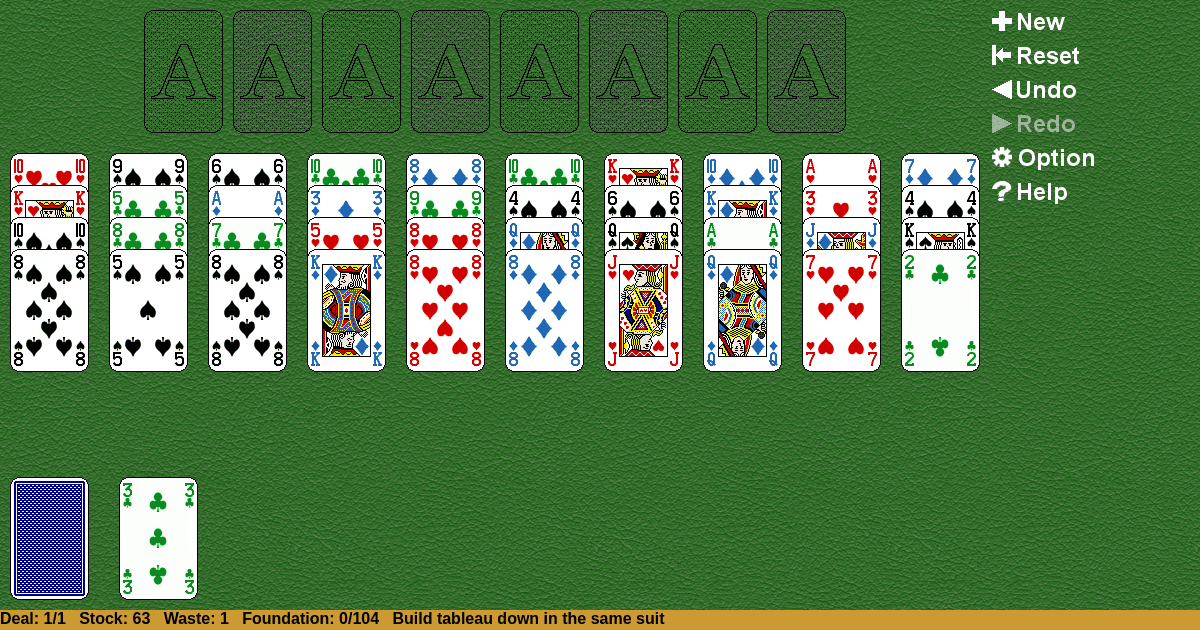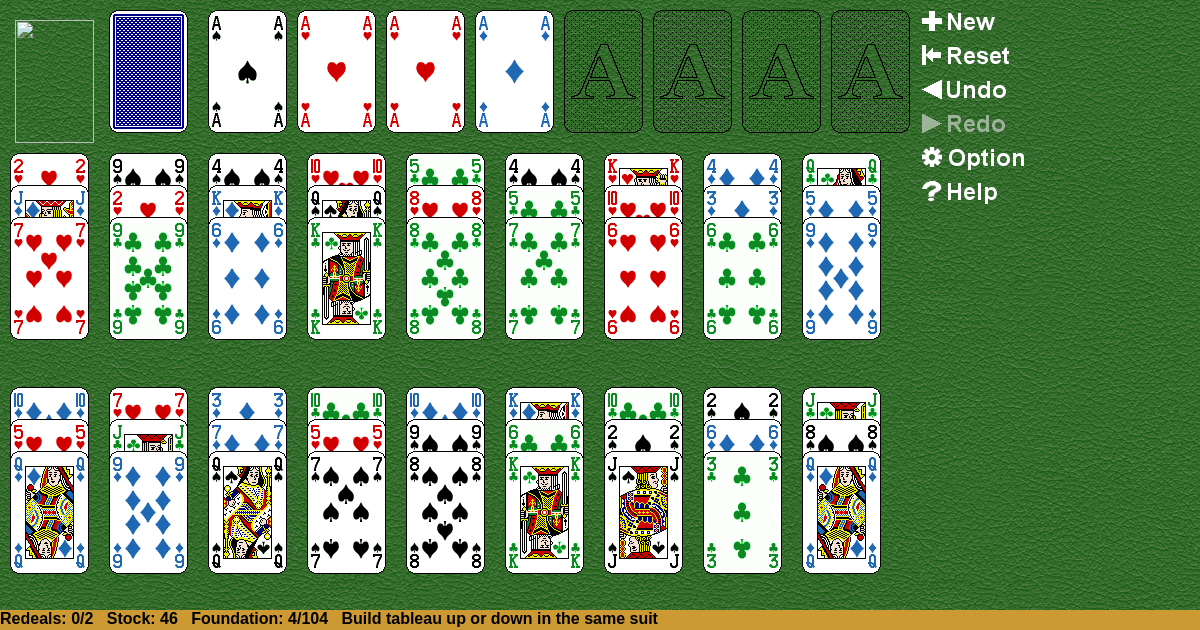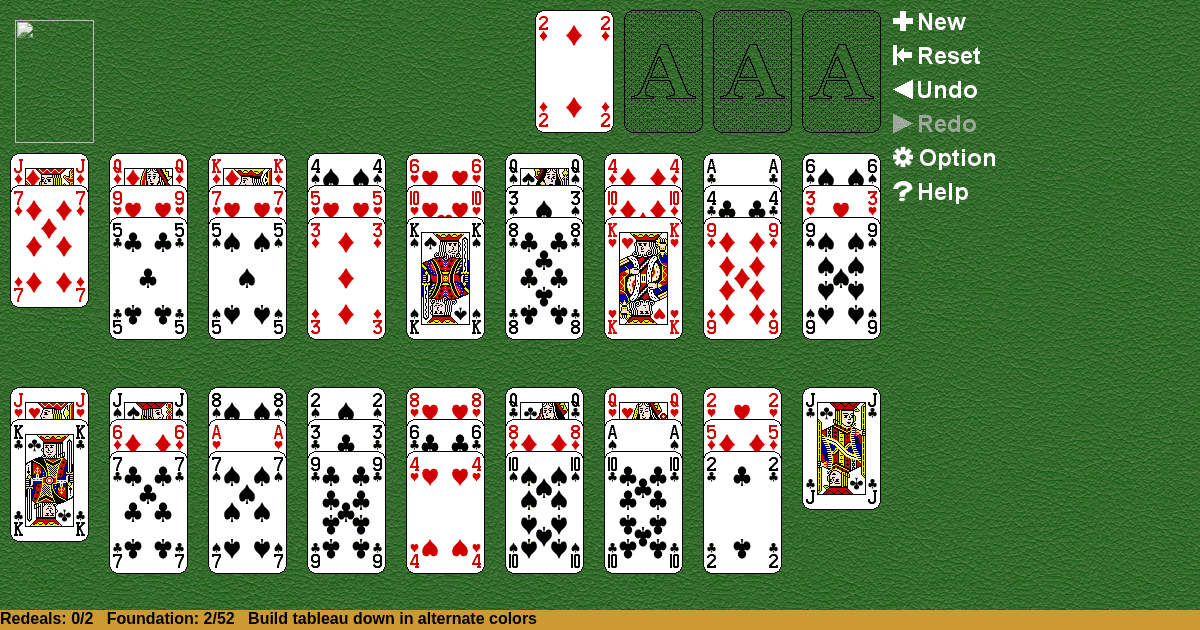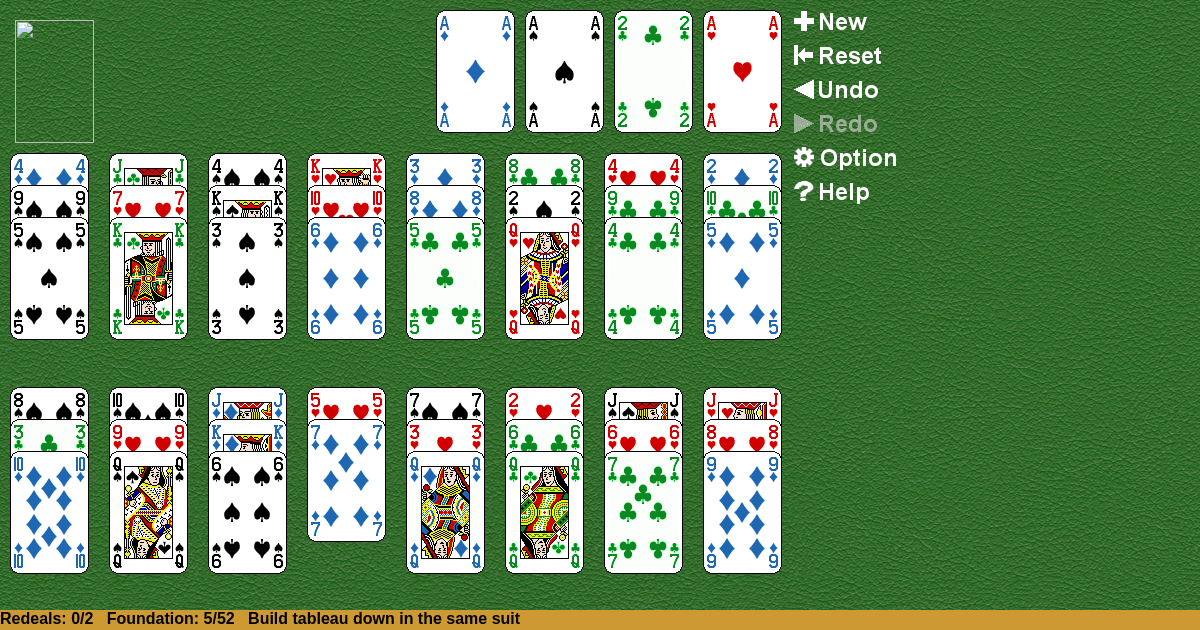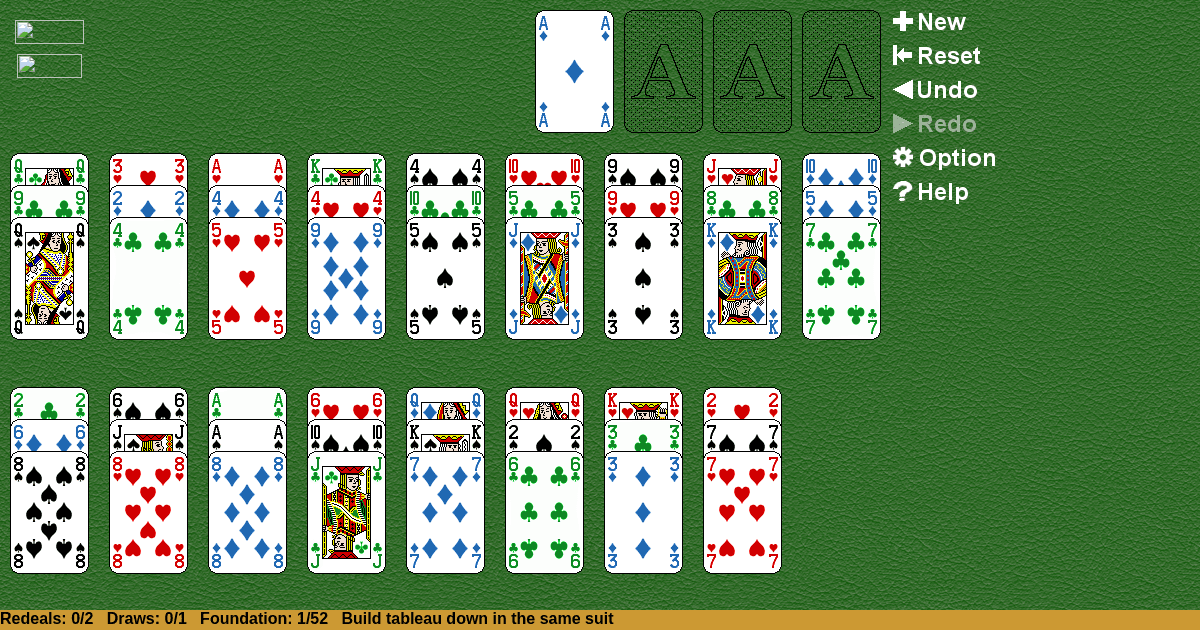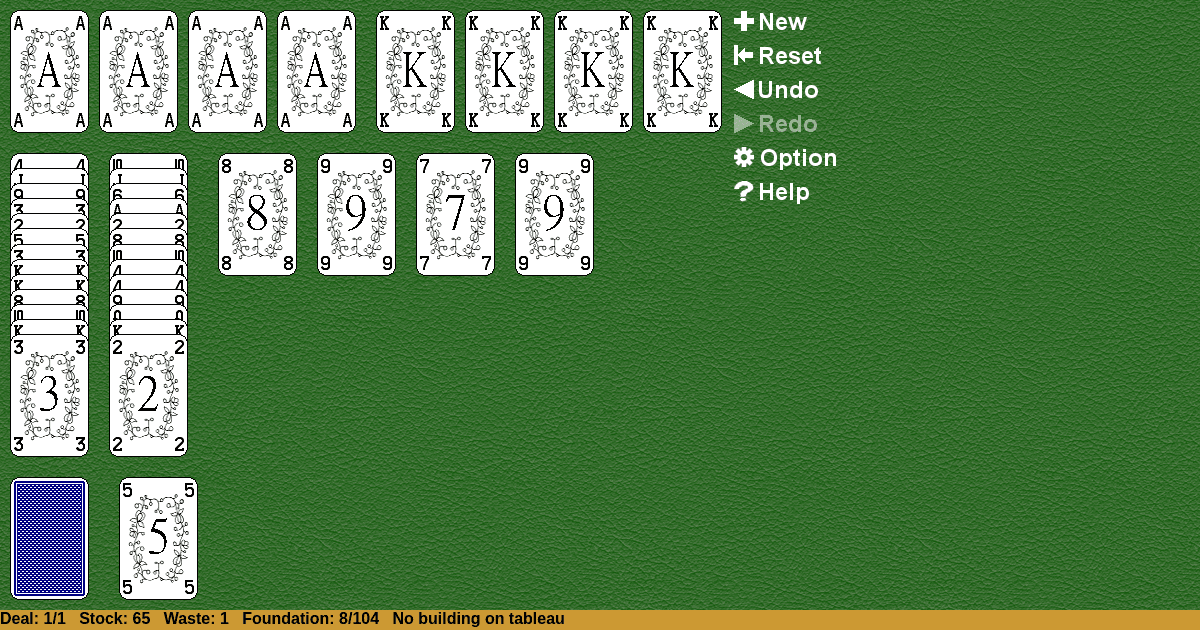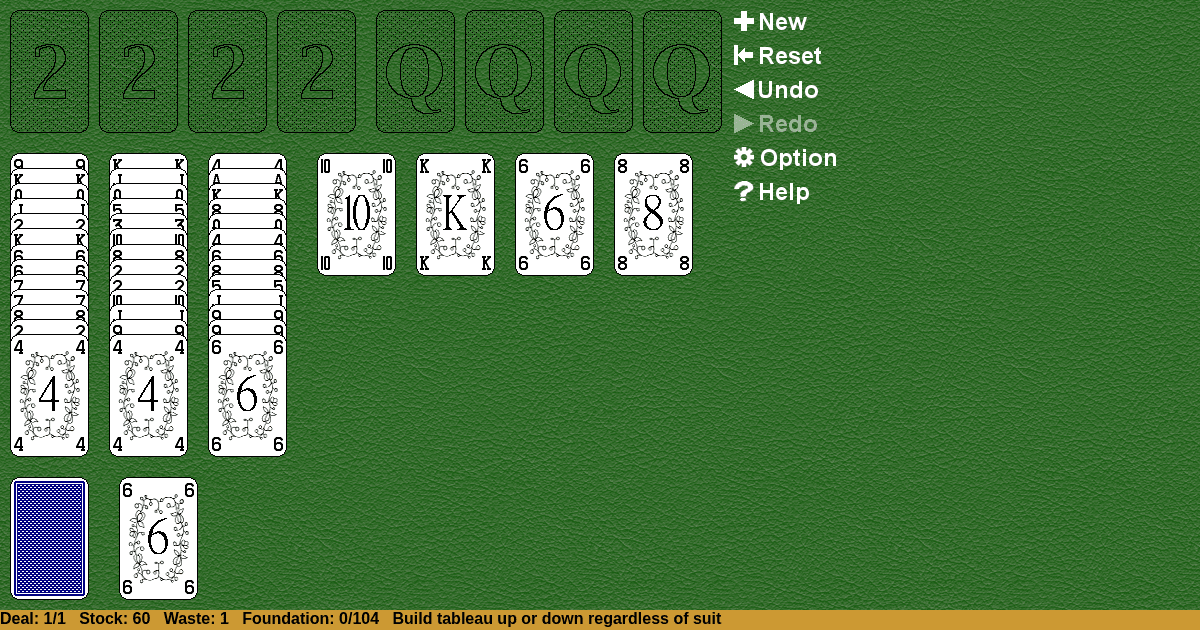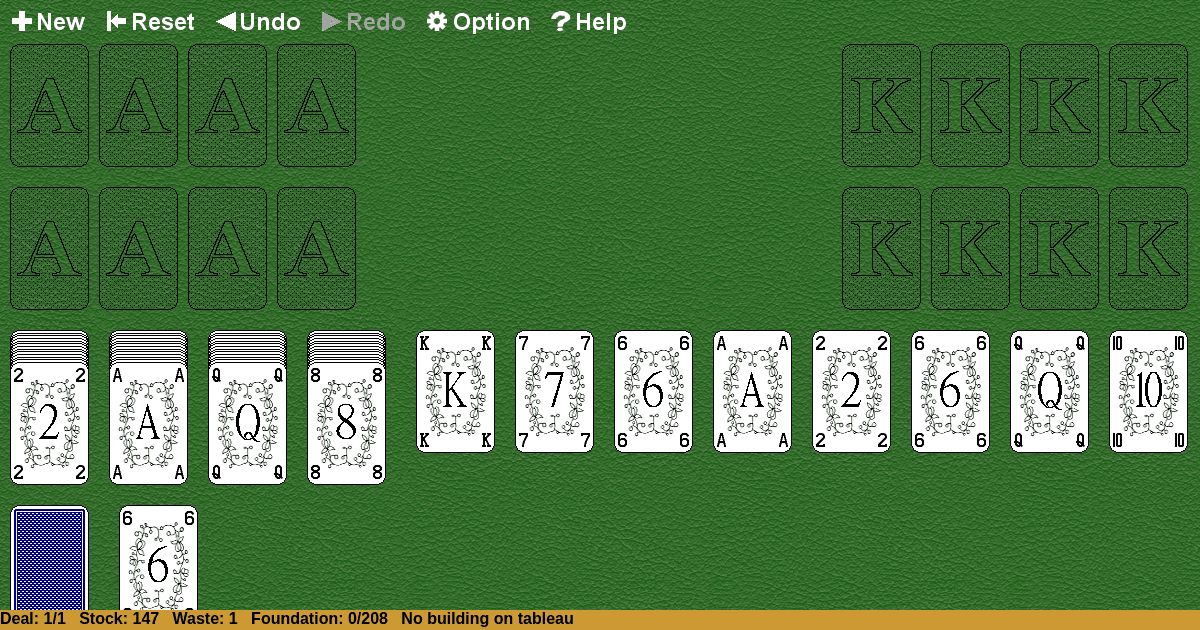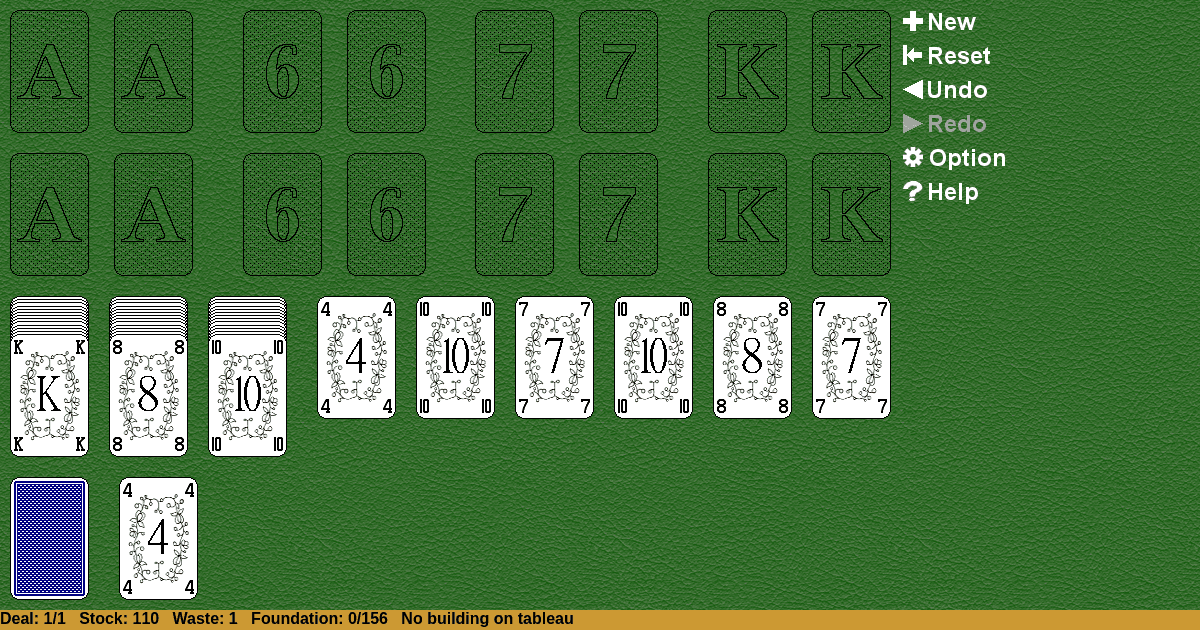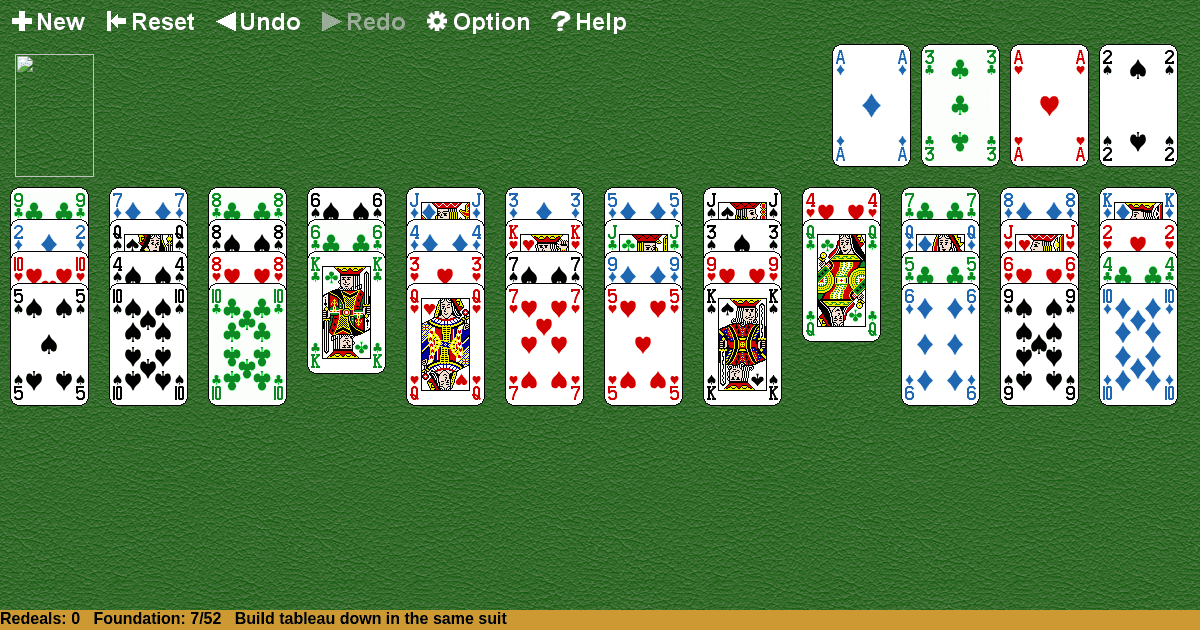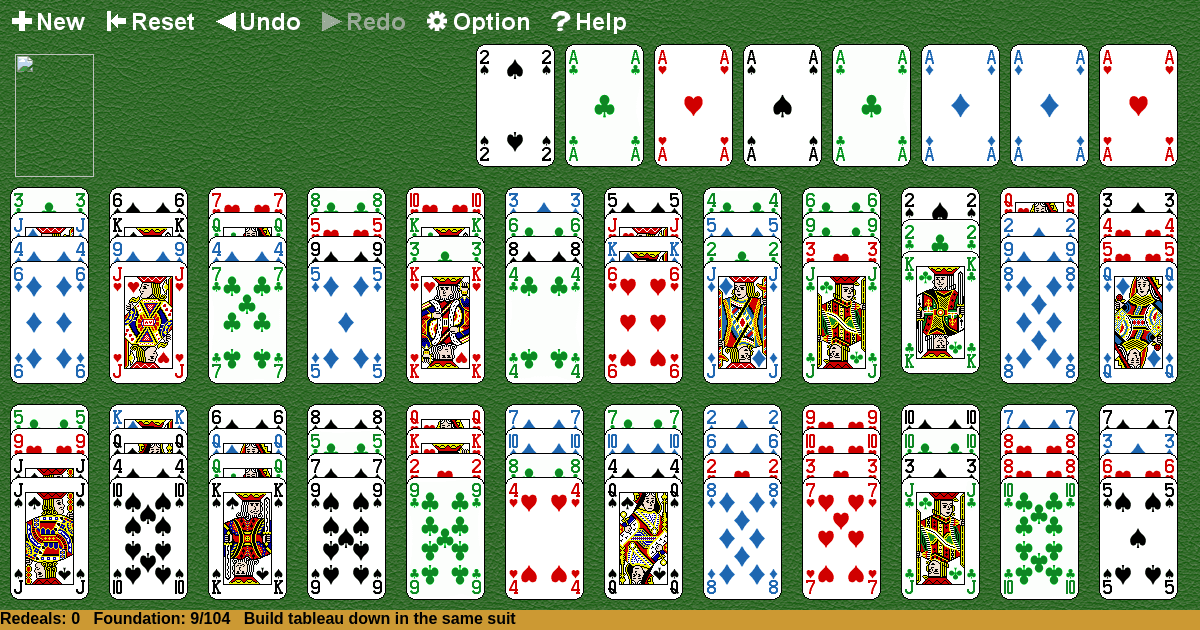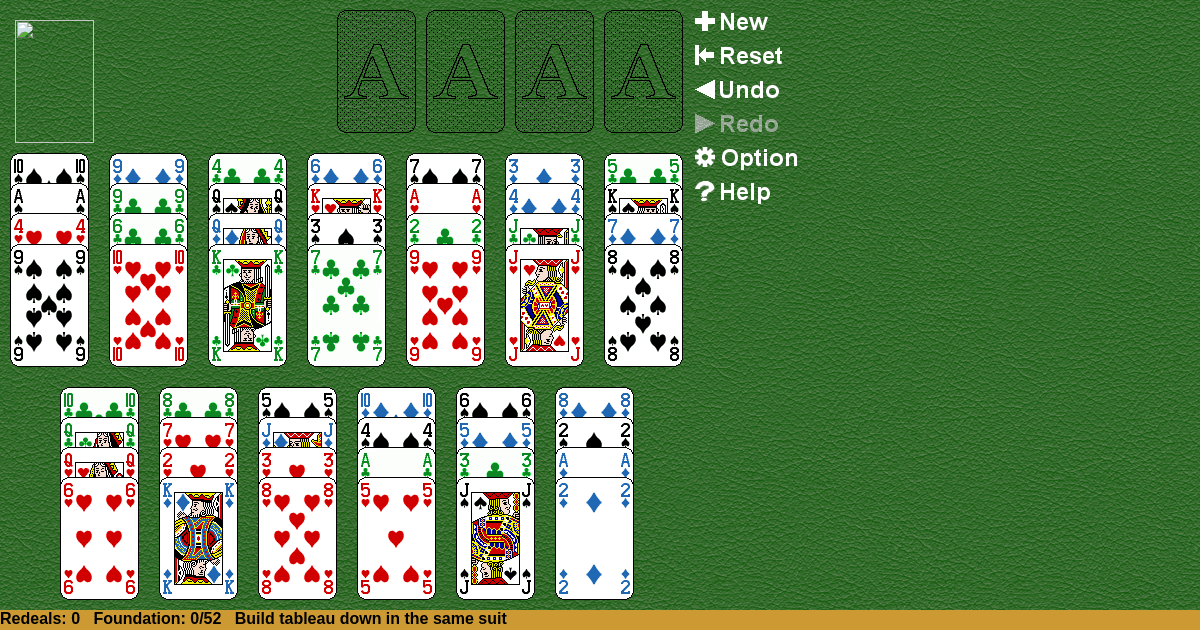Twenty
Home |
How to play |
FAQ |
About
How to play Twenty?
Game Objective:
The primary goal in Twenty Solitaire is to move all cards from the tableau and stock to the foundations by following strict building rules for each foundation pile.
Setup & Layout:
- Deck: Use a standard double deck (104 cards; two standard 52-card decks combined).
- Foundations: There are 8 foundation piles:
- Four piles start with an Ace of each suit, which must be built up in suit to King (e.g., Ace♠, 2♠, 3♠, …, King♠).
- Four piles start with a King of each suit, which must be built down in suit to Ace (e.g., King♥, Queen♥, …, Ace♥).
- Tableau: There are 20 tableau piles, each dealt one card face-up at the start of the game.
- Stock: The remaining cards form the stock pile, face-down.
- Waste: Some versions reference a waste pile, but in standard rules, cards move directly from the stock to tableau; the waste is only used when the stock is depleted and tableau spaces need to be filled.
Key Play Areas Defined:
- Foundations: Where cards are built up or down by suit.
- Tableau: Twenty piles, each with one face-up card, where cards are available for play to the foundations.
- Stock: Supplies new cards to the tableau during play.
Twenty Solitaire Rules:
- Card Movement:
- Only the top card of each tableau pile is available for play to the foundations.
- No building is allowed on the tableau; cards cannot be moved between tableau piles.
- Only one card may be moved at a time; sequences cannot be moved.
- Foundation Building:
- Ace foundations: Build up in suit from Ace to King (e.g., Ace♣, 2♣, …, King♣).
- King foundations: Build down in suit from King to Ace (e.g., King♠, Queen♠, …, Ace♠).
- Filling Spaces:
- When a tableau pile becomes empty, it is automatically filled with a card from the stock.
- If the stock is empty, spaces may be filled by the top cards of other tableau piles.
- Dealing from Stock:
- When no further moves are available, click the stock to deal one card onto each tableau pile.
- There is no redeal; the stock can only be used once.
Gameplay:
- Initial Moves:
- Examine the tableau and move any available cards to the appropriate foundation piles, following the suit and direction rules.
- Dealing from Stock:
- When no more moves are possible, deal one card from the stock onto each tableau pile by clicking the stock.
- Continue Play:
- After each deal, again move any available tableau cards to the foundations.
- Repeat dealing from the stock and moving cards to foundations until the stock is exhausted.
- Empty Spaces:
- Any tableau space created is immediately filled from the stock, if available.
- Once the stock is empty, spaces can be filled by moving the top card of another tableau pile, if possible.
- No Redeal:
- The stock is dealt only once; there is no second pass through the stock.
Winning & Losing Conditions:
- Win: The game is won when all cards are moved to the foundations, completing all eight piles from Ace to King or King to Ace as required.
- Loss: The game is lost (unwinnable) if no further moves are possible and the stock is exhausted, with cards remaining in the tableau or stock that cannot be played to the foundations.
Special Rules & Edge Cases:
- Filling Empty Tableau Spaces:
- Spaces in the tableau are automatically filled from the stock whenever available.
- If the stock is empty, spaces can be filled by moving the top card of another tableau pile.
- No Tableau Building:
- Cards cannot be built or moved between tableau piles; only moves to the foundations are allowed.
- No Redeal:
- The stock is dealt only once; after it is empty, no further cards enter play from the stock.
- One Card at a Time:
- Only single cards may be moved at any time; sequences or groups of cards cannot be moved together.
- Automatic Moves:
- Some digital implementations may allow double-clicking to move a card directly to its foundation if legal.
Summary of Unique Mechanics:
- Dual-direction foundation building (Ace-up and King-down, by suit).
- Twenty tableau piles, each always holding at most one card.
- No building or moving within tableau; only moves to foundations are allowed.
- Automatic filling of tableau spaces from stock, then from other tableau cards when stock is depleted.
- No redeal: single pass through the stock, emphasizing careful planning and efficient play.
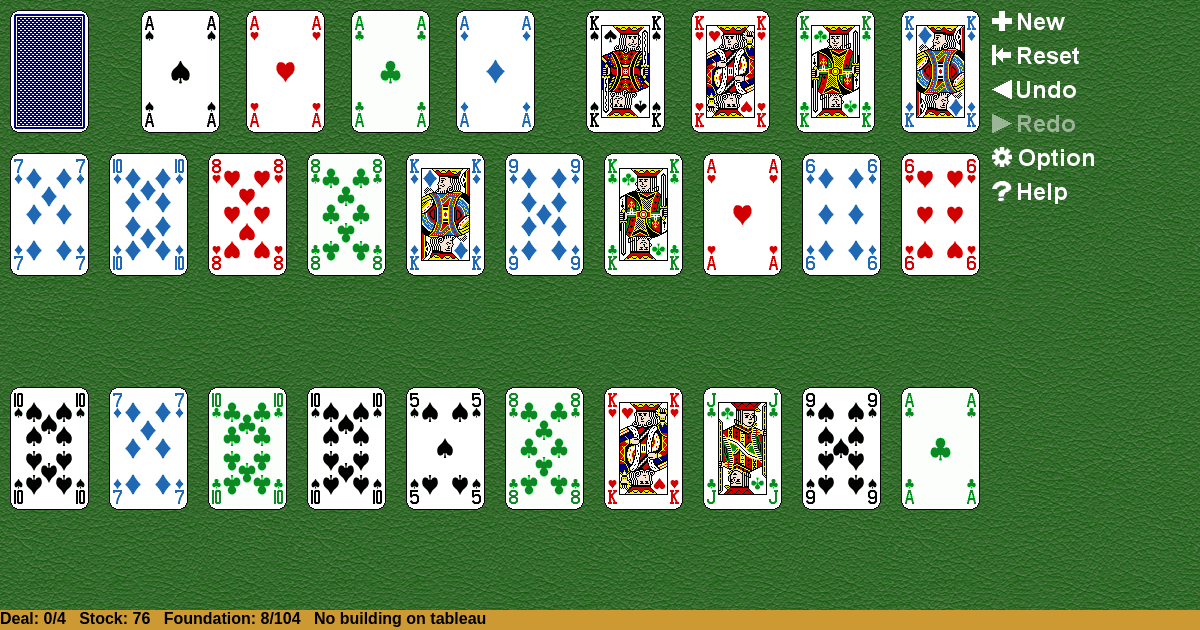
Solitaire Collection
About Twenty
Rate (Twenty)
4.7 / 5
1,916 votes
